| Last Name Sort descending | First Name | Image | Title | Keywords | Bio | Departmental Page |
|---|---|---|---|---|---|---|
| Abraham | David | 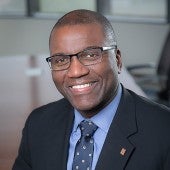
|
Lecturer in BioSciences, Professional Science Masters Program in Environmental Analysis | Sustainable Development Planning; Environmental Planning & Management; Urban Development Performance Measurement; Transportation Planning; Urban Planning | Dr. David B. Abraham, is a scholar of Urban and Environmental Planning and Policy, specializing in Sustainability Planning and Performance Measurement. His research focuses on developing sustainability strategies for the enhancement of living places. His research and professional experience includes: Developing & publishing Houston's first Community level Resilience & Revitalization; Developing Houston's first comprehensive Sustainability Community Indicators portal; Food insecurity planning; Health and well-being impacts from the built environment; and Urban forestry sustainability strategies. He also has expertise with Transportation Planning and Environmental Impact Assessments He has published an edited volume on Best Practices for Promoting the Sustainable Development Goals in North American Cities. Dr. Abraham’s work been featured at workshops, keynote agendas and conference proceedings throughout the US and internationally in Ireland, Barbados, Brazil, Canada and Portugal. Dr. Abraham is a Senior Fellow with the American Leadership Forum (ALF). He currently serves on the City of Houston Planning Commission and Airport Commissions. As well as other boards both locally and nationally. | Website |
| Ajo-Franklin | Jonathan | 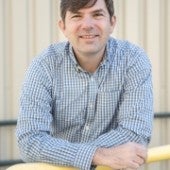
|
Professor of Earth, Environmental and Planetary Sciences | Applied geophysics, seismic imaging, timelapse seismology, distributed acoustic sensing, rock physics, geological carbon storage, geothermal energy, hydrogeophysics, environmental and energy systems, climate change, CO2 mitigation | Jonathan Ajo-Franklin is a professor of Earth, Environmental, and Planetary Sciences at Rice University. His research focuses on solving challenging problems relevant to environmental and energy systems using the tools of applied geophysics. He seeks to advance seismic acquisition and monitoring approaches to help constrain the dynamics of subsurface fluid flow, fracture mechanics, stress perturbations, and phase changes. A central theme of this work is using seismology to solve generational problems at the interface between human activity and the subsurface, mainly CO2 mitigation and energy production in a carbon-constrained world, management of scarce water resources, and understanding the impact of climate change on subsurface systems including permafrost stability and the weathering cycle. Among the energy-related topics of interest to the group are geophysical techniques for identifying, optimizing, and monitoring geothermal energy production, particularly in rocks with low permeabilities. Recently, Ajo-Franklin’s group has worked on the utilization of distributed fiber optic sensing methods, particularly distributed acoustic sensing (DAS), to allow for dense large aperture seismic recording. The group is also interested in permanent seismic sources, in boreholes and on the surface, to allow for time lapse imaging with short repeat times and high sensitivity. Beyond acquisition, the group is interested in better understanding the seismic properties of rocks, particularly the role of fractures, cracks, and ice in controlling seismic velocity and attenuation. | Departmental Page |
| Alabastri | Alessandro | 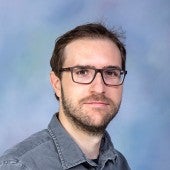
|
Assistant Professor of Electrical and Computer Engineering | Optics, photonics, electronics, nano-devices, energy conversion systems | Alessandro Alabastri is an Assistant Professor of Electrical and Computer Engineering at Rice University. Dr. Alabastri is an expert in nanophotonics and in computational modeling of photo-thermal interactions in complex nanostructures. He is interested in the study of nanoscale photo-thermal phenomena and their applications in real-world macroscale systems. One of the main topics his group is working on is the use of efficient light-absorbing nanoparticles for low-cost and sustainable water desalination. Light-absorbing nanoparticles are a neat example of nanostructures capable of localizing electromagnetic energy and dissipating heat. Among many possible applications, the use of light-absorbing nanoparticles can be beneficial for water desalination. Dr. Alabastri also introduced the concept of resonant heat transfer, a thermal energy accumulation method that allows enhancing the performance of light-driven desalination, paving the way to the development of decentralized and efficient water treatment solar systems. | Website |
| Alexander | David | 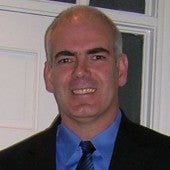
|
Professor of Physics and Astronomy, Director of Rice Space Institute | Solar astrophysics, space studies, solar flares, magnetic interactions between stars and planets, magnetic topology | David Alexander is a Professor of Physics & Astronomy at Rice University and the Director of the Rice Space Institute (RSI). Dr. Alexander's focus is on solar physics, exoplanetary physics, and earth remote sensing; his main area of interest is the study of the dynamic solar corona via the analysis and theoretical interpretation of thermal and non-thermal radiation. His primary contributions have been in the area of solar flare and CME physics where he has developed theoretical models for the production of gamma-rays, hard X-rays, and soft X-ray line broadening. He is involved with a number of projects relating to understanding the initiation and evolution of solar flares and CMEs by exploring particle production in association with, magnetic topology, helicity injection and filament eruptions. He currently leads the NSF-funded INSPIRE project to study the magnetic interactions between stars and planets and is devising a novel snapshot hyperspectral imager for Earth remote sensing with colleagues in bioengineering. He is author of The Sun (2009) by Greenwood Press. | Website |
| Alvarez | Pedro | 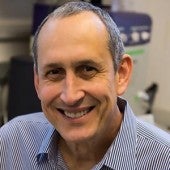
|
George R. Brown Professor of Civil and Environmental Engineering | Nanomaterial synthesis, environmental sustainability, bioremediation, toxins, environmental applications of nanotechnology, biofuels, water treatment | Pedro J. J. Alvarez is the George R. Brown Professor of Civil and Environmental Engineering at Rice University, where he also serves as founding Director of the NSF Engineering Research Center on Nanotechnology-Enabled Water Treatment (NEWT). His research interests include environmental implications and applications of nanotechnology, bioremediation, fate and transport of toxic chemicals, water footprint of biofuels, water treatment and reuse, and antibiotic resistance control. Alvarez is an Associate Editor of Environmental Science and Technology and previously served on the scientific advisory board of the EPA and of the advisory committee of the NSF Engineering Directorate. He was elected to the National Academy of Engineering for contributions to the practice and pedagogy of bioremediation and environmental nanotechnology. | Website |
| Ash | Jeanine | 
|
Research Scientist in Earth, Environmental, and Planetary Sciences | Clumped isotopes, biogeochemistry methane, deep biosphere, metabolisms below sea floor | Website | |
| Ball | Zachary | 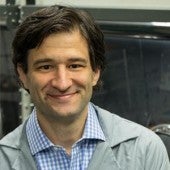
|
Professor of Chemistry, Faculty Director of the Institute of Biosciences and Bioengineering | Organic synthesis, chemical biology | Zachary T. Ball is a Professor of Chemistry at Rice University and the Director of the Rice Institute of Biosciences and Bioengineering. The lab's research interests include protein chemistry, transition-metal catalysis, and aqueous-phase chemistry. Traditional approaches to reaction development have a number of environmentally destructive attributes: generation of unwanted products, the use of toxic and/or dangerous reagents, the use of petrochemical-based solvents. Our lab research combines numerous ideas borrowed from chemistry and biology to overcome these limitations. De novo protein- and peptide catalysts offer environmentally benign catalysts, with self-healing or self-replicating properties. In addition, novel transition metal cofactors allow novel bond activation strategies that obviate the need for toxic/dangerous reagents. Our overarching goals include environmentally friendly chemical workflows that are safe and scalable. | Website |
| Beason-Abmayr | Beth | 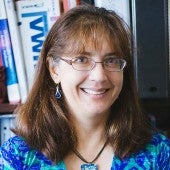
|
Teaching Professor of BioSciences | Lab work in the biosciences, synthetic biology, molecular biology | Website | |
| Beaudrot | Lydia | 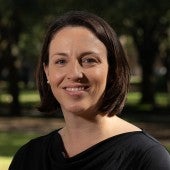
|
Assistant Professor of BioSciences | Ecological theory, conservation biology, statistical modeling, tropical vertebrate communities, tropical mammals and birds, biodiversity conservation, global change and climate change | Lydia Beaudrot is an Assistant Professor of BioSciences at Rice University. Her research addresses fundamental questions at the interface of community ecology, macroecology, and conservation biology. More specifically, the group studies why sites, such as national parks, support different communities of species, how global change is affecting populations and communities, and how we can use this understanding for conservation. The primary goals of their research are to: 1) Identify mechanisms that structure tropical vertebrate communities across spatial scales 2) Understand how tropical mammals and birds respond to global change 3) Apply results to biodiversity conservation They investigate these questions by combining observational field data, trait and phylogenetic data, and advanced statistical modeling to integrate and synthesize large, complex datasets on climate, plants, and warm-blooded animals. Most of this work focuses on tropical forests. |
Website |
| Bedient | Phil | 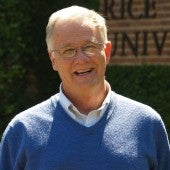
|
Herman Brown Professor of Engineering | Surface water hydrology, GIS and radar based flood alert systems, flood control and water quality strategies, advanced hydrologic modeling, disaster planning and mitigation, climate change | Dr. Philip B. Bedient is the Herman Brown Professor of Engineering in the Department of Civil and Environmental Engineering at Rice University. He teaches and performs research in surface water hydrology disaster management, and flood modeling and prediction systems. Bedient has four decades of experience working on flood prediction problems in the U.S. He developed one of the first radar-based rainfall flood alert systems (FAS5) in the U.S. for the Texas Medical Center and currently has several FAS systems running in Texas. He also formed the Severe Storm Prediction, Education and Evacuation from Disaster (SSPEED) Center at Rice University in 2007, consisting of a team of seven universities and fifteen investigators from the Gulf Coast. The SSPEED Center has taken a regional approach to developing mitigation strategies and has identified zones of interest in the Houston-Galveston region. Bedient has evaluated six of the largest and most devastating floods to hit the U.S. between 2001 and 2017. He is currently involved in the modeling Hurricane Harvey (2017) impacts and mitigation in seven different watersheds near Houston. Finally, he recently built the FIRST system for flood warning in four watersheds in Houston which launched in early 2021. | Website |
| Bennett | George | 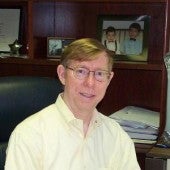
|
E. Dell Butcher Professor of BioSciences | Molecular biology, metabolic engineering, synthetic biology, biofuel production | George N. Bennett is the E. Dell Butcher Professor of BioSciences at Rice University. The Bennett Lab focuses on genetic engineering of metabolic pathways of microbes for production of biofuels and chemicals. Bennett studies the responses of bacteria to stresses either encountered in nature or in an industrial fermentor, such as pH or oxygen limitation. These fundamental studies have developed the group's approaches to metabolic engineering: cofactor engineering to modify the availability of redox factors, such as NADH; the "cellular refinery” approach of producing multiple compatible products during a process; and the modeling and use of available genetic resources from the large genomic and biochemical databases for optimal metabolic performance. Other areas of research involve Clostridium acetobutylicum where the group seeks to understand and manipulate genes related to butanol production. Efforts are also under way to study the genetic and biochemical basis of biodegradation of nitroaromatic and other hazardous compounds by this soil bacterium and to develop novel DNA technology for microbial genetic engineering via "synthetic biology" approaches. | Website |
| Biswal | Lisa | 
|
Associate Department Chair of Chemical and Biomolecular Engineering, William M. McCardell Professor in Chemical Engineering | Soft materials (colloids, polymers, lipids, and surfactants), synthetic material development, novel materials for batteries and solar technology | Website | |
| Blackburn | Jim | 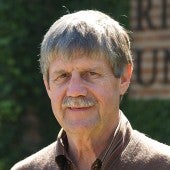
|
Professor in the Practice of Environmental Law | Environmental law, disaster relief and mitigation, flood protection, conservation | Website | |
| Bowdoin | Natasha | 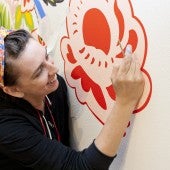
|
Associate Professor of Painting and Drawing | Art installations, reimagining the relationship between humans and nature | Natasha Bowdoin is an Associate Professor of Painting and Drawing at Rice University. Her work pushes the boundaries between drawing, painting, sculpture, and installation. Known for her cut paper, collage-based work, and site-responsive installations, she investigates the potential intersections of the visual and the literary, channeling the experience of reading into the activity of drawing, while reimagining our relationship to the natural world. | Website |
| Boyer | Dominic | 
|
Professor of Anthropology | Energy, climate, politics and society, renewables, media, socialism | Dominic Boyer is a Professor of Anthropology at Rice University, specializing in the study of energy, climate, politics, and society. With Professor Cymene Howe, he recently completed a large NSF-funded field research project on the political culture of wind power development in Southern Mexico. He is currently researching competing models of electricity provision and their social implications in Europe, the United States, and Latin America. And with Dr. Mark Vardy, he is doing NSF-sponsored field research in Houston with victims of Hurricane Harvey. His previous work concerned the practice of news journalism in Germany and the United States and demonstrated how the rise of new digital information technology combined with the spread of neoliberal policy regimes to profoundly unsettle broadcast-era patterns of newsmaking and news circulation, thus forcing news journalists to reinvent their expertise and authority. Future comparative research, also with Professor Howe, will focus on the cultural and social dimensions of ice loss and sea level rise across the world. He co-hosted and produced CENHS's Cultures of Energy podcast from 2016 to late 2019. His first film, "Not Ok," about the loss of Iceland's first major glacier to climate change, premiered in 2018. | Website |
| Braam | Janet | 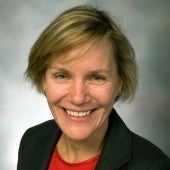
|
Wiess Professor of Biochemistry and Cell Biology | Plant biology, environmental stress and stress responses, circadian clock, plant defense, nanoparticle-plant interactions | Website | |
| Bradford | Gwen | 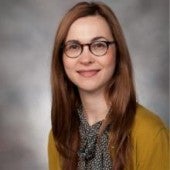
|
Associate Professor of Philosophy | Achievements, value-theory, perfectionism, well-being, uniqueness, human nature | Gwen Bradford is Associate Professor of Philosophy at Rice University. Her area of specialization is ethics. She has written on issues about well-being, the badness of pain, intrinsic value, achievement, and uniqueness. She is interested in issues concerning obligations to and the moral status of sentient and nonsentient beings. In her recent work on consciousness and value, she explores the possibility that, contrary to popular thought, consciousness may not be necessary for moral status, which opens the possibility of obligations to nonsentient beings, such as plants and ecosystems. Her new project on uniqueness explores the nature of uniqueness and irreplaceable value, which affords new resources for grounding obligations to the natural world, including endangered species, ecosystems, and other planets with life. | Website |
| Brandt | Anthony | 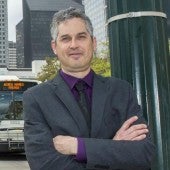
|
Professor of Composition and Theory | Creativity, music, composition, futures | Anthony Brandt is a Professor of Composition and Theory at Rice. His recent chamber opera ‚ Kassandra‚ retells a Greek myth of Apollo as an allegory about climate change. In addition to composing, Dr. Brandt is co-founder and Artistic Director of the Houston-based contemporary music ensemble Musiqa. Dr. Brandt and neuroscientist David Eagleman have co-authored The Runaway Species: How Human Creativity Remakes the World. He is currently a co-PI in an NEA Research Lab examining the benefits of musical creativity for the elderly. He is also the author of an innovative, web-based music appreciation course called Sound Reasoning, created for Rice University's OpenStax. | Website |
| Bratter | Jenifer | 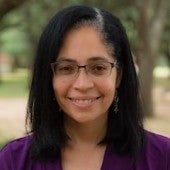
|
Professor of Sociology, Director of the BRIDGE (Building research on Inequality and Diversity to Grow Equity) program | Race, demography, marriage, family, social inequality | Website | |
| Campana | Joseph | 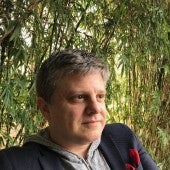
|
Alan Dugald McKillop Professor of English; Director of the Center for Environmental Studies | Creative writing, early modern literature, gender and sexuality, renaissance, animal studies, ecocriticism, environmental humanities, science & culture studies, poetry and poetics | Joseph Campana is a poet, arts writer, and scholar of the literature and culture of Renaissance Europe, at a time of climatic instability many refer to as the Little Ice Age. Recent projects consider early modern understandings of humanity, creaturely life, personhood, scale, affect, waste, and other concerns refracted through a range of arts and media, from poetry and theater to political theory and natural history. Often his work considers how traditionally literary or aesthetic categories—like form, genre, and media—and histories of ecological concepts inform broader kinds of environmental thinking. Current projects include two monographs in progress, Living Figures: Life and it Forms in Early Modernity and Scales of Nature: Thinking with Bees in the Renaissance, a two-volume co-edited collection on Renaissance insect life called Lesser Living Creatures, and a collection of pastoral poems entitled Live Oak. His interests in the contemporary eco-arts has resulted in a collaboration with artists Marina Zurkow and Sarah Rothberg to create an open-access digital version of their Investing in Futures, a constraint-based system to encourage speculation about futures. Campana serves as the Alan Dugald McKillop Professor of English, the Director of the Center for Environmental Studies, the co-director of the ENST minor, and a co-PI on the Mellon Foundation-funded Diluvial Houston grant. |
Website |
| Chavez | Sergio | 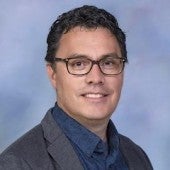
|
Associate Professor of Sociology | Internal and international migration, labor markets, social networks, the border, cross-border urban environments, gender | Website | |
| Chen | Jing | 
|
Assistant Professor of Psychological Sciences | human-automation interaction; human performance and decision making; autonomous driving; cybersecurity; flood risk communication | Chen earned her B.S. and M.Ed. in Psychology from Zhejiang University, in 2007 and 2010, respectively, and her M.S. in Industrial Engineering and Ph.D. in Psychology from Purdue University in 2015. Her research interests include investigating the fundamental principles of human performance and decision-making, and their application to solving human-automation interaction problems in autonomous driving and cybersecurity. Chen is a recipient of the Rising Star Award from the Association for Psychological Science and the Earl Alluisi Award for Early Career Achievement from the American Psychological Association, and a Fellow of the Psychonomic Society. | Website |
| Cherukuri | Paul | 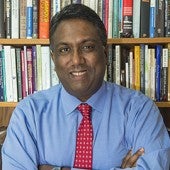
|
Executive Director of the Institute of Biosciences and Bioengineering, Adjunct Professor of Management - Entrepreneurship | Nanomaterials, directed energy, nanomedicine, bioelectronics, drug delivery, technology commercialization | Dr. Paul Cherukuri is the Executive Director of the Institute of Biosciences and Bioengineering where he develops and implements bio-related cross-disciplinary research, education, and innovation projects between Rice and the Texas Medical Center. The Cherukuri research group studies electrodynamic properties of nanoscale and biological materials aimed at developing solutions for global problems in energy and health. His discovery of Teslaphoresis has received wide acclaim by the scientific community (e.g. ACS Editors' Choice) and national media (e.g. Wired Magazine, IEEE Spectrum) as a breakthrough technique in nanotechnology with potential applications ranging from material science to medicine. He is a subject matter expert in nanomaterials, directed energy, bioelectronics, drug development, transdisciplinary research, design thinking, entrepreneurship, and technology commercialization. | Website |
| Clements | Niki | 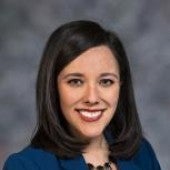
|
Watt J. and Lilly G. Jackson Assistant Professor of Religion, Allison Sarofim Assistant Professor of Distinguished Teaching in the Humanities, Director of Undergraduate Studies for the Department of Religion | Philosophy of religion, history of Christian practice, religious ethics, religion and science, religion and medicine, mental health | Website | |
| Cohan | Daniel | 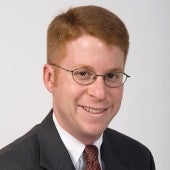
|
Associate Professor of Civil and Environmental Engineering | Energy and environmental policy, health, climate change, photochemical modeling, atmospheric modeling, air quality, pollutant analysis, environmental management | Daniel Cohan is an Associate Professor of Civil and Environmental Engineering at Rice University. His research specializes in the development of atmospheric models and their application to air quality management, energy policy, and health studies. Current projects in his lab include simulating the formation of ozone and particulate matter; modeling the emissions of reactive nitrogen species from soils and the impact of agricultural practices; assessing the air quality, climate, and economic impacts of electric power generation and alternative fuel vehicles; and chronicling U.S. efforts to address climate change. He is the author of 50 peer-reviewed publications, numerous articles in popular media, and the forthcoming book, Confronting Climate Gridlock, which will be published by Yale University Press in spring 2022. | Website |
| Contou-Carrere | Marie-Nathalie | Research Advisor for Industry Partners at the Ken Kennedy Institute, Interim Executive Director of the Rice Carbon Hub | Website | |||
| Correa | Adrienne | 
|
Assistant Professor of Ecology and Evolutionary Biology | Marine microbial symbiosis, global change, coral reef ecology, environmental virology, water, marine ecosystems | Adrienne M. S. Correa is an Assistant Professor of BioSciences at Rice University. The Correa lab seeks to understand how microorganisms (e.g., microeukaryotes, viruses, bacteria) influence the health of marine invertebrates (e.g., corals, sponges) under ambient and stressful conditions. Lab research focuses on coral reef ecosystems, which are hotspots of biodiversity, yet highly threatened by climate change and other anthropogenic stressors. The lab's research can inform interventions to support coral reef resilience and mitigate reef degradation. | Website |
| Cox | Dennis | 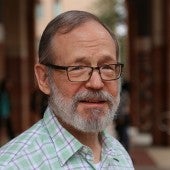
|
Professor of Statistics | Nonparametric function estimation, machine learning, Monte Carlo methods, envirometrics, probaility theory | Dennis Cox is a Professor of Statistics at Rice University. His primary research interests are nonparametric function estimation, functional data analysis, stochastic processes, machine learning, Bayesian methods, statistical computing, and the foundations and applications of statistical inference. He has collaborated with investigators from such disciplines as environmental engineering, electrical engineering, neurophysiology, oncology, and nuclear fusion research as well as worked with both Professors Dan Cohan and Phil Bedient at Rice and with researchers on water quality at my former employer at Univ. of Illinois. Professor Cox has also done theoretical work in nonparametric function estimation, statistical approximation theory, and Bayesian methods. | Website |
| Davies | Christian | 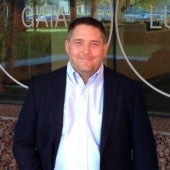
|
Global project management, contract negotiation, stakeholder engagement, soil carbon and greenhouse gas measurement and assessment, stable isotope probing, microbial ecology, biogeochemistry, ecosystem services assessment. Developing stable isotope spatial mapping approaches to exploration and leak detection in the oil and gas industry. | Website | ||
| Dee | Sylvia | 
|
Assistant Professor of Earth, Environmental and Planetary Sciences | Paleoclimate, climate dynamics, climate change, water isotope physics, atmospheric modeling | Sylvia Dee is an Assistant Professor and climate scientist at Rice University, specializing in atmospheric modeling, water isotope physics, and paleoclimate data-model comparison. Sylvia's research projects include topics in climate modeling and climate of the past millennium, using general circulation models (GCMs) and proxy system models (PSMs) to explore the dynamics of the tropical climate system. Sylvia is the developer of the water isotope-enabled, fast-physics atmospheric dynamical model, SPEEDY-IER, and a public platform for proxy system modeling development, PRYSM. Generally, her research centers on key questions about the past and future of Earth's hydrological cycle under different mean climate states, including global climate change. | Website |
| DesRoches | Reggie | 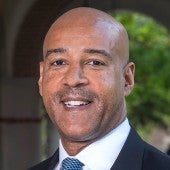
|
Howard R. Hughes Provost, Professor of Civil and Environmental Engineering, Professor of Mechanical Engineering | Resilient infrastructure systems, smart materials | Website | |
| Dib | Lina | 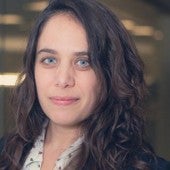
|
Lecturer in the Program in Writing and Communication and the Center for Environmental Studies | Art, ethnography, socio-technical and ecological change | Lina Dib is a multidisciplinary artist and anthropologist. Her installations and compositions range from the experimental to the ethnographic and investigate socio-technical and ecological change. Dib is an affiliate artist at the Topological Media Lab at Concordia University in Montreal and is a lecturer and fellow at Rice University in the Program in Writing and Communication and the Center for Environmental Studies. Her work has been supported by the Andy Warhol Foundation for the Visual Arts, Canada's Social Science and Humanities Research Council, the Union of Concerned Scientists, AMIDA's European training program, the City of Houston through the Houston Arts Alliance, the Moody Center for the Arts and Rice University's Humanities Research Center among others. Recent exhibitions include Yerba Buena Gardens San Francisco, Lawndale Art Center Houston, MOP Projects Sydney, Day For Night, Galveston Arts Center, The Museum of Fine Arts Houston, Discovery Green, Governor's Island NY, the Whitney Biennial 2017, and Johnson Space Center NASA. For publications, interviews and current shows, visit linadib.com. | Website |
| Doss-Gollin | James | Assistant Professor of Civil and Environmental Engineering | Earth science, data science, decision science, infrastructure systems, hydroclimatic dynamics, water infrastructure, climate change and climate adaptation | James Doss-Gollin is an assistant professor in the department of Civil and Environmental Engineering at Rice University. His research is motivated by challenging questions at the intersection of climate dynamics, water management, data science, and decision science. By developing methods for understanding and predicting spatiotemporally clustered hydroclimate risk, and for incorporating uncertain projections into sequential decision problems, he strives to enable the delivery of flexible and resilient infrastructure services. Dr. Doss-Gollin completed his M.S. and Ph.D. in Earth and Environmental Engineering at Columbia and holds a B.S. in Mechanical Engineering from Yale University. Prior to joining Rice University, he was a postdoctoral researcher in the Earth and Environmental Systems Institute at the Pennsylvania State University. Dr. Doss-Gollin's teaching experience and exploration of rigorous evidence have helped to define his teaching mission to create an inclusive and interactive environment in which students critically apply quantitative tools to the study of complex systems. | Website | |
| Droxler | Andre | Professor Emeritus of Earth, Environmental and Planetary Sciences | Carbonate sedimentology, reef and carbonate evolution, climate change, sea level change | Andre W. Droxler is Professor Emeritus of Earth, Environmental and Planetary Sciences at Rice University. His research has focused on studying the morphology of and the sediments accumulating on slopes and basin floors surrounding coral reefs and carbonate platforms. Over the past 30 years, he has conducted research programs in the Bahamas, offshore Jamaica, along the Belize margin, in the western Gulf of Mexico, in the Maldives (Indian Ocean), along the Australian Great Barrier Reef and in the Gulf of Papua (Papua New Guinea). The main focuses of Droxler’s research include the regional and global evolution of coral reefs, the paleo-oceanographic/climatic and sea level records archived in the sediments deposited around reefs and carbonate platforms. His work has been funded by the National Science Foundation, the American Chemical Society and numerous grants from oil and gas companies. Droxler has published more than 100 scientific publications and has edited two books, including Earth’s Climate and Orbital Eccentricity: The Marine Isotope Stage 11 Question (2003). Droxler received his master’s degree equivalent from the University of Neuchâtel (Switzerland) in 1978 and earned his Ph.D. from the Rosenstiel School of Marine and Atmospheric Sciences at the University of Miami (Florida) in 1984. | Web page | |
| Dunham | Amy | 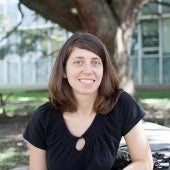
|
Associate Professor of BioSciences | Population and community ecology, conservation biology, evolution and behavior, climate change, tropical forests, anthropogenic disturbances | Website | |
| Egan | Scott | 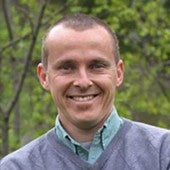
|
Associate Professor of BioSciences | Environmental diagnostics, evolution, speciation, population genetics and genomics, natural history | Scott Egan is an Associate Professor of BioSciences at Rice University. He is interested in the processes that promote or constrain the evolution of biodiversity. This includes (1) understanding the role of adaptation via natural selection in the evolution of new species and (2) exploring characteristics of the genome mediating the evolution of new species. This work integrates detailed natural history, manipulative field experiments, behavioral observations, population genetics, and genomics. Dr. Egan also collaborates on large interdisciplinary research projects that combine principles of population genetics, ecology, evolution, engineering, biogeochemistry, and physics to address important societal challenges, such as the rapid detection of disease or their vectors, monitoring invasive or endangered species, or quantifying community-wide biodiversity. To do this, his group employs environmental DNA (eDNA) or environmental protein (eProtein) sampling combined with targeted or community-wide metagenetic and/or proteomic approaches to better assay the environment for visible and hidden biodiversity. |
Website |
| Elliott | Jim | 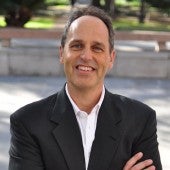
|
Professor of Sociology; Department Chair | Urban and community sociology, environmental disasters, social production of inequalities and environmental hazards, urbanization, inequities in hazardous waste accumulation, industrial pollution, and carbon emissions | James (Jim) R. Elliott is a Professor and the Department Chair of Sociology at Rice University. Dr. Elliott's research focuses on the social production of inequalities and environmental hazards. Early work examined how globalization contributes to structural underemployment; how neighborhood segregation shapes job networks and opportunities; how ethnic divisions of labor form and persist over time; and how race and gender intersect to open and close access to workplace power in diverse urban labor markets. More recent research focuses on social inequities revealed and exacerbated by natural hazards and government-led recoveries as well as the historical accumulation and systemic spread of industrial hazards. He is a Faculty Affiliate of the Kinder Institute for Urban Research, past editor of Sociological Perspectives, and former advisor to the National Science Foundation's program in Sociology. | Website |
| Ensor | Kathy | 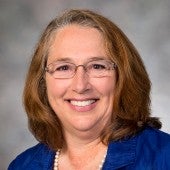
|
Noah G. Harding Professor of Statistics, Director of CoFES (Center for Computational Finance and Economic Systems) | Use of statistical techniques to answer scientific, enginering, and business questions focused on the environment, energy, and finance | Katherine Bennett Ensor is the Noah G. Harding Professor of Statistics at Rice University and the director of the Center for Computational Finance and Economic Systems (CoFES.rice.edu). She also oversees the Kinder Institute's Urban Data Platform, a resource for the greater Houston area. With a focus on finance, risk management and urban analytics, Dr. Ensor develops innovative statistical techniques to answer important questions in science, engineering, and business. She develops methods for dependent data including time series / spatial and spatial-Temporal / high-dimensional and Information integration. Primary application areas of her work include environmental statistics and their relation to public health. Dr. Ensor is the 2021 President of the American Statistical Association. | Website |
| Esch | Sophie | 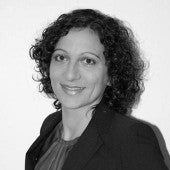
|
Assistant Professor of Latin American Literature and Culture in the Department of Spanish, Portuguese, and Latin American Studies, Assistant Professor in Politics, Law & Social Thought | Mexican Nicaraguan revolutions, Latin American and Lusophone African war and postwar narratives, animal-human studies, environmental humanities, Global South and Atlantic studies | Sophie Esch is an Associate Professor of Mexican and Central American Literature in the Department of Modern and Classical Literatures and Cultures at Rice University. She studies the intersection of literature, politics, environment, and war in the Global South. She specializes in Mexican, Central American and Luso-African literature and culture, with a particular focus on revolutions and armed conflict and the nonhuman, e.g. war technology, animals, and the environment. Her first book, Modernity at Gunpoint: Firearms, Politics, and Culture in Mexico and Central America, provides a critical exploration of the political and cultural significance of firearms in the Mexican Revolution, the Sandinista Revolution, postwar Central America, and the drug war in Mexico. Her current book project, Creatures of Conflict: Writing War Beyond the Human, shows that animals and other nonhuman entities are central to the discussion, conception, and contemplation of armed conflict in Latin America and Africa. This research on animals and war has been supported by the National Endowment of Humanities (NEH) and the School of Global Environmental Sustainability of Colorado State University, where she organized a conference on "Environment and Conflict in Latin America." Additionally, before becoming a professor, Sophie Esch worked on water issues in Mexico and Central America for the Heinrich Boll Foundation and co-edited the volume, The Drop of Life. Towards a Sustainable and Democratic Water Governance. | Website |
| Evans | Kory | Assistant Professor of BioSciences | Ichthyology, morphological evolution, systematics, comparative anatomy, development, trophic ecology, bony fishes | Kory Evans is an Assistant Professor of BioSciences at Rice University. The Evans lab is interested in the ecology and evolution of phenotypic diversity, integrating data from developmental biology, ecology, biomechanics, and phylogeny to understand this process at various timescales. Bony fishes provide a unique opportunity to ask these questions and study the origins of phenotypic diversity along with the interface between phenotype and environment, within the most species-rich assemblage of vertebrates on the planet. Their research program is centered on three questions: 1. How do patterns of ontogenetic variation scale to patterns of phenotypic diversity? 2. How do intrinsic (ontogenetic constraints) and extrinsic (environmental variation) factors influence patterns of phenotypic diversification and convergence? 3. How do functional traits covary in development and evolution? |
Website | |
| Fleisher | Jeffrey | 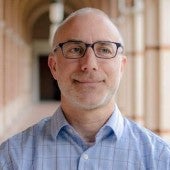
|
Professor and Department Chair of Anthropology | Eastern and Southern Africa, rural communities in urban settlement systems, village settlements, material culture, archaeology | Jeffrey Fleisher is a Professor and the Department Chair of Anthropology at Rice University. He is an archaeologist that works in eastern and southern Africa, and his research has focused on questions that concern people often left out of archaeological interpretations. This research has explored: the roles that rural and non-elite people play in the composition of urban societies and the way they participate in social, economic, and religious spheres; the transformation of village settlements to 'rural' ones as urban centers develop; the use material culture and space in the establishment and maintenance of social inequality and power; and the way people use everyday items such as ceramics, coins, and architecture in public performances and the construction of value. His current research project, funded by the NEH, is a collaboration with Kathryn de Luna (Georgetown) and Matthew Pawlowicz (Virginia Commonwealth Univ.) in the Kafue River floodplain in southwestern Zambia. The project aims to reconstruct the cultural history of mobility in a region considered beyond the frontiers of surrounding kingdoms and states. This project will be the first to study human mobility in such demographic histories as a historical problem in its own right. Such research on human mobility is only feasible with the creation of an interdisciplinary archive linking archaeological, ecological, ethnohistorical, and historical linguistic data. | Website |
| Fulton | William | 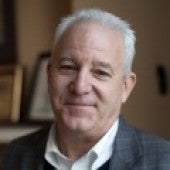
|
Director of the Kinder Institute for Urban Research | Transportation equity, urban development and planning, economic development | William Fulton is the director of Rice University's Kinder Institute for Urban Research. He acts as Publisher of Urban Edge blog and is a member of the Research Oversight Committee of the Kinder Institute's Urban Data Platform, which is a computing environment and secure data repository of research-ready geocoded data for the Houston metropolitan area that facilitates cross-disciplinary research and community investigations. He is a former mayor of Ventura, California, and director of planning and economic development for the city of San Diego. Throughout this career, he has advocated for infill development, walkable communities, public transit, and other forms of urban development that reduce the carbon footprint of human settlements and improve their sustainability. Since arriving at the Kinder Institute in 2014, Fulton has overseen a tripling of the institute's size and budget. He is the author of seven books, including Guide to California Planning, the standard urban planning textbook in California, The Reluctant Metropolis: The Politics of Urban Growth in Los Angeles, which was an L.A. Times best-seller, and Talk City: A Chronicle Of Political Life In An All-American Town. His most recent book is The Texas Triangle: An Emerging Power in the Global Economy (with Henry Cisneros and others). He currently serves as board chair for Metro Lab Network, a national network of research partnerships between cities and universities, and vice chair of LINK Houston, a transportation equity advocacy group. |
Website |
| Getachew | Beza | Assistant Professor in Environmental Engineering | smart and stimuli-responsive materials, environmental remediation, water treatment, water quality sensing | Bezawit Getachew is an Assistant Professor in Environmental Engineering at Rice University and a Research Faculty at the NSF NEWT Center (Nanosystems Engineering Research Center for Nanotechnology-Enabled Water Treatment). Dr. Getachew's research focuses on understanding the performance of "smart materials" in the context of water treatment technologies and systems. Smart materials, also called responsive materials, undergo significant physico-chemical changes in response to external stimuli. Their dynamic behavior can be used for sensing, actuating, self-healing, and controlled-release applications, among many others. Smart materials could play a role in enhancing the versatility and sustainability of water treatment technologies and systems but advances in the design and synthesis of such functional materials are currently focused on and driven by applications outside the environmental engineering field. Research in Dr. Getachew's lab aims to 1) evaluate the performance of different kinds of smart materials in environmentally relevant conditions, 2) integrate them into water treatment technologies and assess their performance against state-of-the-art technologies, and 3) design new materials and composite structures to enable previously unavailable functionalities. | Web page | |
| Ghorbel | Fathi | 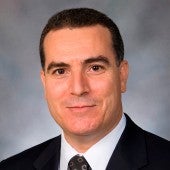
|
Professor of Mechanical Engineering and of Bioengineering | Dynamic systems, biomedical systems, robotic rehabilitation, complex mechanical systems, robotic applications in the energy sector, robotic mapping for oil and gas applications | Fathi H. Ghorbel is a Professor at the Department of Mechanical Engineering at Rice University with a joint appointment at the Department of Bioengineering. He is the Director of the Robotics and Intelligent Systems (RiSYS) Lab. Dr. Ghorbel's scholarly interests are in the field of dynamic systems and control. He devises analytical tools from systems and control theory, and dynamical systems and differential equation theory to analyze, model, and control a variety of complex dynamic systems. RiSYS lab is currently focusing on robotic applications in the energy sector. The in-pipe robotic program focuses on the fundamentals of robotic locomotion, sensing and inspection inside pipes. The lab designed the first robot to inspect coiled tubing and boiler tubing from the inside. In contrast to Hall Effect (point) sensing, the lab is developing a novel general (area) MFL magneto-optical sensing technique that promises to make pipe robotic defect identification (inverse problem) mathematically tractable and industrially practical. The swimming robotic program focuses on developing AUVs for subsea inspection, intervention, and oil and gas exploration. This entails fundamental research in thrusting, sensing, communication, localization, and mapping for the objective of developing AUVs suitable for subsea tight space maneuvering and forceful interaction applications. | Website |
| Gordon | Richard | 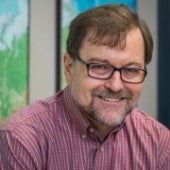
|
W.M. Keck Foundation Professor in Geophysics | Tectonophysics, paleomagnetism, space geodesy, marine geophysics, geodynamics | Website | |
| Gustin | Mike | 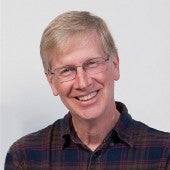
|
Professor of BioSciences | Molecular genetics, biochemistry of signal transduction | Website | |
| Guthrie Shimizu | Sayuri | 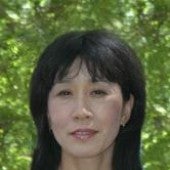
|
Professor and Dunlevie Family Chair of History | US and the world, history of modern international relations, international political economy, pacific world, global history of sports, comparative colonialism | As a Professor of History at Rice University, Sayuri Guthrie-Shimizu is a historian of the United States' relations with the wider world, with a particular emphasis on US-East Asian relations since the mid 19th century. Her research interests, cutting across historiographical and national boundaries, include the history of U.S.-Japanese relations, comparative colonialism, the transpacific world, sports in international relations, and global governance. Dr. Guthrie-Shimizu's current book project examines the rise and transformation of international ocean resource (particularly fisheries) management regimes in the North Pacific in the first half of the 20th century. Dr. Guthrie-Shimizu will work on this book project at the Institute for Advanced Studies in Princeton University in the Fall 2021 term. | Website |
| Hall | Randal | 
|
William P. Hobby Professor of American History, Editor of the Journal of Southern History | Southern history, economic history, US environmental history | Randal L. Hall is the William P. Hobby Professor of American History at Rice University and the Editor of the Journal of Southern History. His specific areas of interest include southern history, economic history, and U.S. environmental history. He is currently working on a study of environmental ideas in 1950's America. Dr. Hall teaches in both the graduate and undergraduate programs. His recent graduate offerings include a research seminar on the U.S. South and a reading course on U.S. environmental history, and he serves on several dissertation committees related to those topics. His undergraduate courses emphasize discussion, analytical writing, and the close reading of primary sources. He has also supervised undergraduate research conducted as part of summer fellowship programs and the History Department's year-long honors thesis program. | Website |
| Hassanzadeh | Pedram | 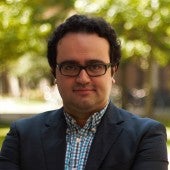
|
Assistant Professor of Mechanical Engineering | Fluid dynamics, complex natural phenomena, environmental and geophysical flows, extreme weather events (heat waves, hurricanes, etc.) climate modeling, atmospheric turbulence | Pedram Hassanzadeh is an Assistant Professor of Mechanical Engineering and of Earth, Environmental and Planetary Sciences at Rice University. Dr. Hassanzadeh is also the Director of the Environmental Fluid Dynamics Group, which studies turbulent flows and chaotic dynamical systems in complex natural phenomena and engineering systems using numerical, mathematical, and machine learning methods, guided by observational and experimental data. His work is often motivated by theoretical and applied problems related to environment and energy. Examples of problems of interest are extreme weather events (e.g., heat waves, hurricanes), climate change impacts, large-scale atmospheric circulation variability, and climate modeling. | Website |
| Heffes | Gisela | 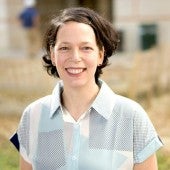
|
Associate Professor of Latin American Literature and Culture | Environmental justice, Latin America, cultural productions | Gisela Heffes is a Professor of Latin American Literature and Culture as well as a writer, ecocritic, and public intellectual with a particular focus on literature, media, and the environment in Latin America. Her research interest focuses on topics such as city and rural spatialities, utopias, environmental narratives, displacement, and migration. She is the editor of the anthology Jud√≠os/Argentinos/Escritores (1999), and two monographs: Las ciudades imaginarias en la literatura latinoamericana (2008) and Políticas de la destrucción/Poéticas de la preservación. Apuntes para una lectura (eco)crítica del medio ambiente en América latina (2013), which received the First Honorable Mention of the LASA Southern Cone section (Premio Libro Humanidades) in 2015. Dr. Heffes has edited two collections of essays, one on the experience of displacement and translocation in the creative imagination of Spanish-American writers residing in the US (Poéticas de los (dis)locamientos, 2012), and another focused on the intersections between utopia and cities in Latin America (UUtopías urbanas. Geopolítica del deseo en América latina, 2013). She was also the guest editor for the special issue of Revista de Critica Literaria Latinoamericana on "Ecocrítica" (2014). More recently, she has co-edited The Latin American Ecocultural Reader (2020), and Pushing Past the Human in Latin American Cinema (2021). As a fiction writer, she has published the novels Ischia (2000), Praga (2001), and Ischia, Praga & Bruselas (2005); the collection of short stories, Glossa urbana (2012); a collection of poetic chronicles, Aldea Lounge (2014); and the novella, Sophie La Belle and the Miniature Cities; her novel Cocodrilos en la noche (2020), and the bilingual collection of poems, El cero m√≥vil de su boca / The Mobile Zero of Its Mouth (translated by Grady C. Wray, 2020). Dr. Heffes is currently working on a manuscript, tentatively entitled, Toxic Nature: Mutated Bodies and Altered Landscapes in Contemporary Southern Cone Narratives and Cinema. | Website |
| Hernández Sánchez | Raúl | 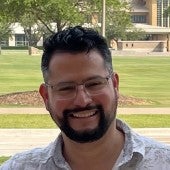
|
Norman Hackerman Welch Young Investigator - Assistant Professor | Water purification; PFAS; contorted aromatics; polynuclear reaction sites. | Raúl joined the Chemistry faculty at Rice in the summer of 2022 and is the Norman Hackerman Welch Young Investigator Junior Chair. Prior to joining Rice, Raúl was an Assistant Professor from 2018 to 2022 in the Department of Chemistry at the University of Pittsburgh. He was born in Chihuahua, México. During his undergraduate years Raúl worked intermittently as a research assistant in the laboratory of Prof. Sossina Haile (Caltech) in the summers of 2007-09, and spring of 2008. Later, he explored the formation of ionic membranes under the guidance of Prof. Beate Klösgen at the Southern University of Denmark in the spring of 2009. He received a B.Sc. in Chemistry from the Department of Chemistry at ITESM Campus Monterrey in 2010 defending a thesis under the direction of Prof. Jesús Angel Valencia on the synthesis of drug-loaded dendrimers. He then moved to Cambridge, Massachusetts to pursue a Ph.D. in Chemistry at Harvard under the mentorship of Prof. Ted Betley. After completing his thesis on the Coordination Chemistry and Electronic Structure of Iron Clusters, he then moved to Columbia University as a Columbia Nano Initiative Postdoctoral Fellow to work under the supervision of Prof. Colin Nuckolls. At Rice University, his group's research interests lie at the interface between synthetic organic and inorganic chemistry to create novel functional materials and catalysts capable of activating small molecules at polynuclear reaction sites, the creation of novel contorted aromatics, and the design of anion receptors for the removal of toxic chemicals from our environment. | Website |
| Hilton | Isaac | 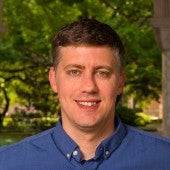
|
Assistant Professor of Bioengineering and BioSciences | Genome and epigenome engineering technologies, synthetic biology, immunoengineering and cancer, tissue engineering, regenerative medicine, drug delibery, gene and cell therapies, genome & rpigenome engineering | Website | |
| Howard Ecklund | Elaine | 
|
Herbert S. Autrey Chair in Social Sciences, Professor of Sociology, Founding Director of the Religion and Public LIfe Program | Religion, science, immigration, culture | Elaine Howard Ecklund is the Herbert S. Autrey Chair in Social Sciences and Professor of Sociology, as well as founding director of the Religion and Public Life Program. Theoretically, Ecklund explores how individuals and small groups bring changes to larger institutions that constrain them. Substantively, her work explores this topic in relation to religion, science, gender, race, the environment, and immigration in different national contexts. Ecklund teaches classes at the graduate and undergraduate level on immigration, sociology of science, classical sociological theory, research methods, and religion in public life. Here are some of her articles related to research on religion and the environment: Vaidyanathan, Brandon, Simranjit Khalsa, and Elaine Howard Ecklund. 2018. "Naturally Ambivalent: Religion's Role in Shaping Environmental Action." Sociology of Religion 79(4):472-494. Ecklund, Elaine Howard, Christopher P. Scheitle, Jared Peifer, and Dan Bolger. 2016. "Examining Links between Religion, Evolution Views, and Climate Change Skepticism." Environment and Behavior 49(9):985-1006 (Environment and Behavior's "Most Read" article in October 2016). Peifer, Jared, Simranjit Khalsa, and Elaine Howard Ecklund. 2016. "Political Conservatism, Religion and Environmental Consumption in the United States.‚" Environmental Politics 25(4):661-689. Peifer, Jared, Elaine Howard Ecklund, and Cara Fullerton. 2014. "How Evangelicals from Two Churches in the American Southwest Frame Their Relationship with the Environment.‚" Review of Religious Research 56(3):373-397. |
Website |
| Howe | Cymene | 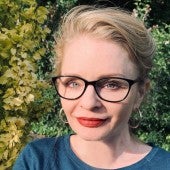
|
Professor of Anthropology | Climate change, futures, ice, the Arctic, gender and sexuality, Latin America, the anthropocene | Cymene Howe is a Professor of Anthropology at Rice University. Her research focuses on anthropogenic climate change and how it demands new ways of imagining our collective futures. She has a longstanding interest in the overlapping conversations between feminist and queer theories, new materialisms and more-than-human beings, and she has done fieldwork in Nicaragua, Mexico, the United States, Iceland and most recently, Cape Town, Honolulu, and Greenland. Dr. Howe has been active in the creation of public-facing initiatives including: the memorial for Okjökull (Ok Glacier), the film Not Ok: A Little Movie about a Small Glacier at the End of the World, the installation Aeolian Politics, and several publications that test the edges of scholarly/public engagement. She also co-hosted 200 episodes of the Cultures of Energy podcast. Currently, Dr. Howe’s research focuses on the interrelationship between melting ice in the Arctic and sea level rise in coastal cities. Centered on diverse practices of adaptation, her NSF-funded Melt/Rise research is a study of cryo/hydrological relations that, instead of linking distant locations through commodity chains, scapes, or flows, draws upon sociomaterial substances to develop the concept of hydrological globalization. | Website |
| Huntington | Eric | 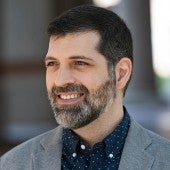
|
T. T. and W. F. Chao Assistant Professor | Buddhism; Asian religions; visual and material culture; art; cosmology; landscape; ritual; philosophy | Eric Huntington specializes in the visual culture, ritual, and philosophy of Buddhism. Employing interdisciplinary methods and comparative and historicizing frameworks, he investigates cosmology, landscape, space, embodiment, perception, representation, and materiality in search of new ways to understand the fundamental ideas, practices, places, and objects of varied cultures. | Website |
| Johnson | Lacy | 
|
Assistant Professor of Creative Writing | Creative nonfiction, activism, museum curation, natural disasters, floods | Lacy M. Johnson is an Associate Professor of Creative Writing in the English Department at Rice University. She teaches Creative Nonfiction, with an emphasis on environmental justice, disaster studies, and ecofeminism. She is a curator, activist, and is author of The Reckonings (Scribner, 2018), which was a finalist for the National Book Critics Circle Award in Criticism, and was named a best book of the year by Boston Globe, Electric Literature, Autostraddle, Texas Observer, Book Riot, and elsewhere. For its frank and fearless confrontation of the epidemic of violence against women, Johnson's memoir The Other Side (Tin House, 2014). was named a finalist for the National Book Critics Circle Award in Autobiography, the Dayton Literary Peace Prize, an Edgar Award in Best Fact Crime, the CLMP Firecracker Award in Nonfiction; it was a Barnes and Noble Discover Great New Writer Selection for 2014, and was named one of the best books of 2014 by Kirkus, Library Journal, and the Houston Chronicle. She is also author of Trespasses: A Memoir (University of Iowa Press, 2012), which has been anthologized in The Racial Imaginary (Fence Books, 2015, edited by Claudia Rankine et al.) and Literature: The Human Experience. In 2020, she was awarded a Guggenheim fellowship in General Nonfiction. She is Founding Director of the Houston Flood Museum and is co-editor, with Cheryl Beckett, of the forthcoming More City Than Water: A Houston Flood Atlas (University of Texas Press, 2022). | Website |
| Johnson | Richard | 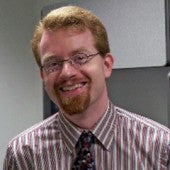
|
Director of the Administrative Center for Sustainability and Energy Management, Professor of the Practice of Environmental Studies in Sociology | Sustainability, energy management, campus planning | Richard Johnson is the Executive Director for Sustainability, and he manages the Administrative Center for Sustainability and Energy Management at Rice. In this role, he leads Rice's sustainability program and also oversees a team of energy managers and analysts. Richard holds appointments as a Professor in the Practice of Environmental Studies in Sociology and as an Adjunct Lecturer in Civil and Environmental Engineering. He also serves as the Co-Director of the Environmental Studies Program. He is also the former President of the Board of the Houston Farmers' Market, now the Rice University Farmers Market. | Website |
| Johnson | Cassidy | 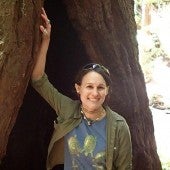
|
Faculty lecturer of BioSciences | Conservation biology, prairie reconstruction, urban agriculture, Houston Zoo | Cassidy Johnson is a biology professor in the Department of Natural Sciences at Houston Community College and a faculty lecturer for Rice BioSciences and Rice's Master of Liberal Studies program. At HCC, Dr. Johnson teaches Microbiology, Biology I, Biology II, and Non-majors Biology and at Rice she teaches Conservation Biology lab (BIOS 322) and Conserving Biodiversity (MLSC 552). Dr. Johnson is passionate about conservation and was previously the president of the non-profit the Coastal Prairie Partnership, which was dedicated to local prairie conservation and communication. She also worked in the Department of Conservation at the Houston Zoo, Inc. as a Houston toad conservation specialist and holds a permit to keep ambassador Houston toads for education purposes. She is currently managing the student-driven, restoration efforts at the Harris Gully Natural Area on Rice campus, which is a collaborative effort between Rice's Arboretum committee, the grounds team, and The Nature Conservancy Texas. Dr. Johnson loves integrating the wonder of the natural world and the Houston environment into her classes, and frequently organizes outdoor events and field trips for her students. She earned a B.S. and M.S. in Biology at Texas A&M University-Corpus Christi and a Ph.D. in Biochemistry & Cell Biology from Rice University. | Website |
| Kapusta | Sergio | 
|
Lecturer in Management at the Jones School of Business, Executive Director of the Energy and Natural Resources Initiative (ENRI) | Website | ||
| Kavraki | Lydia | 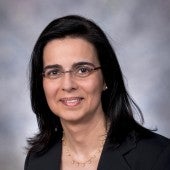
|
Noah Harding Professor of Computer Science, Professor of Bioengineering, Mechanical Engineering, and Electrical and Computer Engineering; Director of Ken Kennedy Institute | Robotics, computational biomedicine, AI, algorithms | Lydia E. Kavraki is the Noah Harding Professor of Computer Science, Professor of Bioengineering, Professor of Electrical and Computer Engineering, and Professor of Mechanical Engineering at Rice University. She is the director of the Ken Kennedy Institute at Rice University. Her research interests span robotics, AI, and biomedicine. In robotics and AI, she is interested in enabling robots to work with people and in support of people. Kavraki's lab is inspired by a variety of applications: from robots that will assist people in their homes, to robots that would build space habitats. In biomedicine she develops computational methods and tools to model protein structure and function, understand biomolecular interactions and metabolism, and aid the process of medicinal drug discovery. As it relates to enviro-specific aspects, Kavraki is interested in the use of robotic technologies for environmental monitoring and also the use of computation to understand metabolic reactions for the degradation of products and for environmental pollution control. | Website |
| Kemmer | Suzanne | 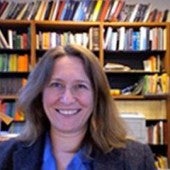
|
Associate Professor of Linguistics and Cognitive Science | Cognitive linguistics, language universals and typology, semantics/pragmatics, language change, Germanic languages, Nilo-Saharan languages, African languages, Austronesian languages | Website | |
| Kimbro | Rachel | 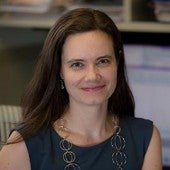
|
Dean, Social Sciences; Herbert S. Autry Professor | Family and population health, food insecurity, Hurricane Harvey | Rachel Tolbert Kimbro is Dean of Social Sciences and Professor of Sociology at Rice University and the founding Director of the Kinder Institute's Urban Health Program. Dr. Kimbro's research focuses on family and neighborhood influences on child health and wellbeing. Her book, In Too Deep: Class and Mothering in a Flooded Community comes out in late 2021 from the University of California Press, and explores the impact of Hurricane Harvey on mothers and children. She is a Founding Faculty Member at Texas Children's Hospital's Center for Child Health Policy and Advocacy, a Baker Institute Scholar, and adjunct faculty at Baylor College of Medicine. | Website |
| Kowal | Daniel | 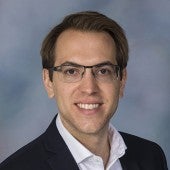
|
Dobelman Family Assistant Professor of Statistics | Environmental health and policy, wearable devices, economics and finance, biomedical engineering | Daniel Kowal is the Dobelman Family Assistant Professor of Statistics at Rice University. Dr. Kowal develops statistical methodology and algorithms for massive data sets with complex dependence structures, such as functional, time series, and spatial data. His recent work focuses on Bayesian models for prediction and inference, decision theory, discrete data analysis, and scalable approximations to complex models. With his research, Dr. Kowal seeks to address open and important questions in public health and policy, medicine and biomedical engineering, environmental science, and finance and economics, among other fields. | Website |
| Kripal | Jeff | 
|
Comparative method and theory in the study of religion, history of religions in America, paranormal currents in the history of science and pop culture | Comparative method and theory in the study of religion, history of religions in America, paranormal currents in the history of science and pop culture | Jeffrey J. Kripal holds the J. Newton Rayzor Chair in Philosophy and Religious Thought at Rice University and presently serves as the Associate Dean of the School of Humanities. His areas of writing include the articulation of a New Comparativism within the study of religion that will put "the impossible” back on the table again, a robust and even conversation between the sciences and the humanities, and the mapping of some emergent mythologies, a "Super Story” that celebrates and integrates ideas from quantum physics, evolutionary biology, and cosmology, including and especially our growing ecological awareness. He is also involved in academic discussions of the new quantum real and its eventual impact on the humanities, the role evolutionary biology has long played in new spiritual currents in Europe, India, and the U.S., and the implications of contemporary cosmology for religious thought, particularly the fine-tuning problem and the block universe model. | Website |
| Lane | Neal | 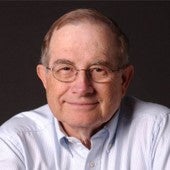
|
Senior Fellow in Science and Technology Policy at the Baker Institute, Professor of Physics and Astronomy Emeritus | Science and technology policy | Neal Lane, Ph.D., is the senior fellow in Science and Technology Policy at the Baker Institute and a Professor of Physics and Astronomy Emeritus at Rice University. The Science and Technology Policy Program is focused on the relationships between scientists and the public. Specifically, they are interested in the regulation and funding of scientific research and development, and how science is used in public policy. Programs include the Civic Scientist Initiative, which analyzes the public understanding of science, and the International Stem Cell Policy Initiative. Additional program topics focus on the federal funding of science, environmental policy and science diplomacy. | Website |
| Lee | Cin-Ty | 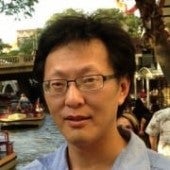
|
Department Chair of Earth, Environmental and Planetary Sciences; Wiess Professor of Geology | Petrology, continent formation and destruction, magma chamber processes, carbon cycling | Cin-Ty Lee is the Harry Carothers Wiess Professor of Geology at Rice University. He is a geologist/petrologist/geochemist who investigates how the planet has evolved with time, from the deepest parts of the Earth's mantle to the continental crust and to the atmosphere. His research combines field mapping and sampling with state of the art analytical tools (mass spectrometry, x-ray spectrometry, electron probe microanalysis) and simple analytical and numerical modeling. He has worked on continent formation and destruction, redox K25evolution of the Earth's interior, the origin of various ore deposits, the petrological structure of volcanic margins, and the origin of granites. He is currently working on the geochemical interactions between the deep Earth and oceans/atmospheres to better understand what controls long term climate evolution. He has led the effort to document all the animals and plants at Rice University over the last 20 years. He is currently working on a book that describes the status of 250 species of birds recorded on campus. His most recent projects are focused on documenting the invisible migration of birds and other animals at Rice and beyond using nocturnal audio recordings of the sky. | Website |
| Lenardic | Adrian | 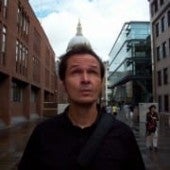
|
Website | |||
| Levander | Caroline | 
|
Vice President for Global and Digital Strategy, Professor in English, Carlson Professor in the Humanities | International engagement, digital course development, transnational American studies, 19th century US literature | Caroline Levander works at the intersection of American culture and higher education innovation. She holds an endowed chair in the humanities, is a professor in the English department, and serves on the university’s senior leadership team as a Vice President. As the author of five books and numerous articles on American cultural history, she has expertise on the long history and politics of American life. Her leadership portfolio focuses on educational innovation, strategic growth, new revenue streams, and digital transformation, all with a focus on global impact. Beyond Rice, she serves on the Coursera Council and is a Fulbright Association board member. She is the recipient of grants from the Rockefeller Foundation, the Mellon Foundation, the N.E.H. and Brown Foundation, among others. | Website |
| Li | Qilin | 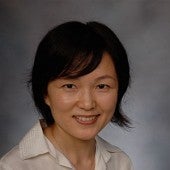
|
Professor of Civil and Environmental Engineering, Co-Director of the NEWT Center (Nanosystems Engineering Research Center for Nanotechnology-Enabled Water Treatment) | Advanced technologies for water and wastewater treatment, membrane processes, colloidal processes and interface phenomena in aqueous environments, environmental applications and implications of nanotechnology | Website | |
| Loch-Temzelides | Ted | 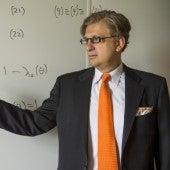
|
George and Cynthia Mitchell Professor in Sustainable Development, Economics | Economic and health consequences of climate change, pollution, deforestation, and zoonotic pathogen transmission, climate and energy economics and policy, sustainability and conservation, global health and the environment | Ted Loch-Temzelides is the George and Cynthia Mitchell Professor in Sustainable Development at the Department of Economics and a James A. Baker III Institute for Public Policy Center for Energy Studies Scholar at Rice University. Dr. Loch-Temzelides has taught and given keynote and research seminars at numerous universities and conferences around the world. His current focus is in quantifying the economic and health consequences resulting from climate change, pollution, deforestation, and zoonotic pathogen transmission. He serves on the editorial board of the journal Economic Theory, and he is a CESifo fellow. He has served as a Vice-President of the Board of Directors, French-American Chamber of Commerce - Houston Chapter, has written opinions for The Wall Street Journal, the San Francisco Chronicle, the Houston Chronicle, and Forbes, and has appeared as a guest on Al-Jazeera and on China Central Television. | Website |
| Lopez-Alonso | Moramay | 
|
Associate Professor; Adjunct Associate Professor of Economics | History of Mexico and Latin America, Economic History, History of Public Health, poverty and inequality | Moramay López-Alonso is an Associate Professor of History, an Adjunct Associate Professor of Economics at Rice University, and a faculty scholar at the Baker Institute. Dr. López-Alonso is an economic historian of Latin America. Her scholarship and research interests are interdisciplinary. Dr. López-Alonso regularly teaches undergraduate courses on Mexican History, Economic History, Poverty Justice and Human Capabilities and Biomedical Approaches to History. She is currently researching the agrarian origins of chaotic urban growth in contemporary Mexico. Her work on urban ejidos examines how the nature of urban growth in 20th century Mexico contributed to the environmental degradation of the Valley of Mexico. Among other things, she will investigate why and how the government failed to adequately regulate the transition from rural to urban property, and could not then establish a reliable land registry that would allow the collection of property taxes. López-Alonso is also researching and measuring the evolution of human welfare in 18th-century Mexico by studying the 1790 Revillagigedo Census. Her work on eighteenth century living standards examines the transition from pre-industrial modes of production that altered environmental living conditions and thus had repercussions on the biological living standards of the Mexican population. | Website |
| Loyo | Jorge | Associate Director of Education in the NEWT Center (Nanosystems Engineering research Center for Nanotechnology Enabled Water Treatment) | Water treatment, global development and sustainable development, the global south, alternative spring break, CCL, water quality and water treatment, water equity and water justice | Jorge Loyo joined Rice in January 2016 as a lecturer for the NSF-funded Engineering Research Center for Nanotechnology-Enabled Water Treatment (NEWT), and he became NEWT's Associate Director of Education in January 2017. In the latter role, Jorge coordinates and runs NEWT's REU program. He developed and runs NEWT's Core Course, offered to the center's first-year graduate students. Jorge collaborates with NEWT's Innovation Ecosystem Director, and the Student Leadership Council in the planning of educational and professional development opportunities for NEWT graduate students and postdocs. At Rice, Dr. Loyo is an Adjunct Professor in the Civil & Environmental Engineering and Bioengineering Departments, where he developed and teaches CEVE/GLHT 314: Sustainable Water Purification for the Developing World, a project-based course on sustainable strategies for safe water supply in low-income and developing regions of the world. He advises undergraduate students in other project-based courses at Rice, and he works with the Center for Civic Leadership in the development of activities to promote student community engagement, such as Alternative Spring and Fall Breaks and summer experiences with water-related NGOs in Mexico. Dr. Loyo's previous research and teaching experience as a postdoctoral scholar (UC Berkeley and Ryerson University) and assistant professor (Monterrey Tech) fall within the areas of water quality assessment, water and wastewater treatment, emerging organic pollutants, and ecotoxicology. | Website | |
| Masiello | Carrie | 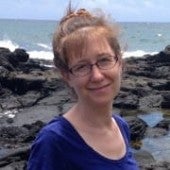
|
W. Maurice Ewing Professor of Biogeochemistry, Professor of Chemistry and BioSciences | Biogeochemistry, soil sustainability, cycling of carbon, nitrogen, and water, synthetic biology | Dr. Masiello is the W. Maurice Ewing professor in the Earth, Environmental and Planetary Sciences department and is jointly appointed in the departments of Chemistry and Biosciences. She is a biogeochemist interested in the processes that control decadal and centennial-scale carbon fluxes through the earth system. Her work includes both basic science directed at improving the understanding of controls on earth system carbon fluxes and applied science directed at managing C fluxes to mitigate climate. She also collaborates with synthetic biologists in the development of new tools to better understand soil microbial processes. Dr. Masiello is committed to creative teaching and outreach designed to make science accessible to everyone. | Website |
| McIntosh | Susan | 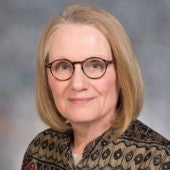
|
Herbert S. Autrey Professor of Anthropology | Origins of complex societies, West African Iron Age archaeology, interior floodplains of the Senegal and Niger rivers, ceramic analysis, cultural property, heritage, and sociopolitics | Susan Keech McIntosh is the Herbert S. Autrey Professor of Anthropology at Rice University. She is an archaeologist whose research since 1980 has focused on Sahelian societies along the Niger and Senegal Rivers in West Africa over the past 2500 years, with a special emphasis on responses of these societies to climate and environmental change. Mobility, trade, and resilient subsistence strategies have been essential to their long term growth, as documented by the multi-disciplinary, collaborative teams of specialists who analyze the diverse set of cultural and economic data she has recovered and interpret them with reference to proxy data on environmental change. She is currently working with historians Ruth Mostern (U Pittsburgh) and Astrid Ogilvie (U Colorado) on a volume on climate in the Global Middle Ages series of Cambridge Elements. Dr. McIntosh is a past president of the Society of Africanist Archaeologists. | Website |
| McNeil | Caroline | 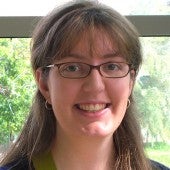
|
Assistant Chair of Undergraduate Laboratories, Lecturer of Chemistry | Organic chemistry, laboratory analysis, instrumental analysis | Website | |
| Medlock | Ken | Adjunct Assistant Professor, James A. Baker and Susan G. Baker Fellow in Energy and Resource Economics | Energy and commodity markets. energy economics, energy policy | Kenneth B. Medlock III, Ph.D., is the James A. Baker, III, and Susan G. Baker Fellow in Energy and Resource Economics at the Baker Institute and the senior director of the Center for Energy Studies. He is also the director of the Masters of Energy Economics program, holds adjunct professor appointments in the Department of Economics and the Department of Civil and Environmental Engineering at Rice University. Medlock is also a Distinguished Fellow at the Institute of Energy Economics, Japan, and is a member of the Advisory Board of the Payne Institute at Colorado School of Mines. In 2012-2013, Medlock held the prestigious Haydn Williams Fellowship at Curtin University in Perth, Australia. He teaches advanced courses in energy economics and supervises Ph.D. students in the energy economics field. Medlock has published numerous scholarly articles in his primary areas of interest, which include: natural gas markets, electricity markets, energy commodity price relationships, transportation, national oil company behavior, economic development and energy demand, energy use and the environment, and various energy transitions topics ranging from engineered and nature-based carbon capture to hydrogen to the economic drivers of technology adoption. He has testified multiple times on Capitol Hill on U.S. energy exports and electricity market evolution, has spoken at OPEC, and is frequently asked to speak about global and domestic energy issues. | Website | |
| Meidl | Rachel | 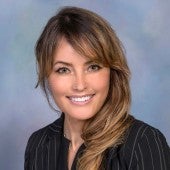
|
Fellow in Energy and Environment at the Baker Institute | Domestic and international policy and law related to transboundary movement of hazardous waste, upstream and end-of-life management of byproducts and wastes, assessing plastics, plastic technologies, advanced electronics, and alternative energy applications from a sustainability and life cycle perspective, coastal resilience of industrial energy infrastructure | Rachel Meidl is a Fellow in Energy and Environment at the Center for Energy Studies at Rice University's Baker Institute. Her research interests focus on the intersection between domestic and international policy and law as it relates to the transboundary movement of hazardous wastes; upstream and end-of-life management of byproducts and wastes; assessing plastics, plastic technologies, advanced electronics, and alternative energy applications from a sustainability and life cycle perspective to understand the environmental, economic, and social impacts across the supply chain; coastal resilience of industrial energy infrastructure; and safety, environmental and hazmat regulations of oil, natural gas, LNG, other petroleum liquids, refined fuels and chemicals within and outside the U.S. | Website |
| Miller | Tom | 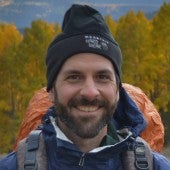
|
Associate Professor of BioSciences | Demography, population dynamics, plant-animal interactions, life history evolution, insects, plants, plant-insect mutualisms | Tom Miller is an Associate Professor of BioSciences at Rice University. Research in his lab addresses fundamental questions regarding population dynamics and the population-level consequences of inter-specific interactions, mostly in plant and insect systems. His work spans population, community, and evolutionary ecology, including the spread of biological invasions, the dynamics of consumer-resource and host-symbiont interactions, and the evolution of life histories. Dr. Miller addresses research questions using both empirical and theoretical methods, and is particularly excited about the integration of theory, data, and statistics. Empirical work in his lab focuses on plants and their ecological interactions (including plant-insect mutualism, herbivory, and plant-microbe symbiosis). Dr. Miller conducts field studies in Texas, New Mexico, Colorado, and Florida. | Website |
| Morgan | Julia | 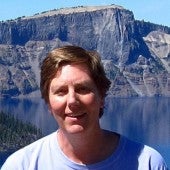
|
Professor of Earth, Environmental and Planetary Sciences | Marine geology, neotectonics, structural geology | Julia Morgan is a Professor of Earth, Environmental and Planetary Sciences at Rice University. Her research interests are focused on deformation processes near the surface of the Earth, and the mechanics responsible for them. In this regime, friction, fracture, and granular flow are the dominant deformation mechanisms, and the origin and evolution of shallow deformation structures are dominated by these processes. Furthermore, deformation near the surface of the Earth often occurs rapidly and without warning, thus resulting in major geologic hazards that impact society. Examples of such events include large earthquakes, especially at subduction zones; landslides and debris avalanches; and volcanic eruptions and associated deformation, all of which Morgan studies. Dr. Morgan's research involves detailed investigations of areas undergoing active deformation, with the goal of understanding the evolution, the mechanical processes responsible, and the risk of future hazardous events in these settings. She has worked around the world, for example, (1) at active subduction zones off the coast of Japan, New Zealand, Chile, Oregon, and Washington State, (2) along ancient passive margins that record the history of continental rifting and extension along the coast of the Iberian Peninsula and in eastern California, and (3) around the Islands of Hawaii, which have experienced large-scale submarine landsliding and avalanching, as well as to more gradual creeping deformation in response to magmatic intrusions and and gravitational settling. Much of Dr. Morgan's research is driven by such field observations (on-land and at sea), but in addition, she and her students conduct numerical simulations to further test their interpretations. |
Website |
| Mulligan | John | 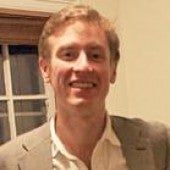
|
Humanities Computing Researcher/Facilitator | History and aesthetics of abstraction, digital humanities, intersections between art and science in the 18th and 19th centuries, mediation | John Mulligan, Ph.D., is a humanities computing researcher and research facilitator in the Center for Research Computing and a Lecturer in the Humanities Research Center at Rice University. In the Center for Research Computing, Dr. Mulligan helps humanists make the most of Rice's IT infrastructure. He works in the history of aesthetics and abstraction and the digital humanities. His work focuses on the intersections between art and science in the eighteenth and nineteenth centuries, and the question of mediation in digital humanistic work. He served as guest editor for Green Theory and Praxis's special issue on Hurricane Harvey (http://greentheoryandpraxisjournal.org/gtpj-volume-13-issue-1-january-2020/). He has also been published in Oxford's Notes and Queries on William Blake and Isaac Newton and Jean-Baptiste Chardin; in MIT's Leonardo on anatomy atlases (https://direct.mit.edu/leon/article/52/1/62/46680/The-Electronic-Vesalius-Embodying-Anatomy-Atlases) and on the Romantic origins of big data (https://direct.mit.edu/leon/article/54/3/282/97257/Knowledge-Discovery-and-the-Aesthetics-of-Big-Data); and in Nineteenth-Century Contexts. His forthcoming piece in Critical Inquiry (Fall 2021) reframe the debate over "computational literary studies" in infrastructural terms. He has also written on COVID mortality under reporting for Rice's Medical Futures Lab (https://mfl.rice.edu/covid-19-excess-mortality-data-visualization). | Website |
| Nichol | Carolyn | 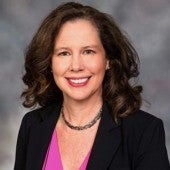
|
Assistant Research Professor of Chemistry, Director of the Rice Office of STEM Engagement (R-STEM) | Science and engineering teaching equity for women and minorities, representation in STEM | Carolyn Nichol is an Assistant Research Professor of Chemistry at Rice University, the Director of the Rice Office of STEM Engagement (R-STEM), and the Education Director for the NEWT Research Center. Dr. Nichol’s research focuses on improving science and engineering teaching and increasing the representation of women and minorities in the STEM fields. She directs programs that focus on providing long-term, inquiry based professional development for K-12 teachers and develops summer academies, internships and mentoring programs to engage Houston students in STEM fields. Many of these programs focus on environmental science including the Energy and Sustainability Academy for high school students, the Inclusive Learning through Earth, Environmental and Planetary Sciences (ILEEPS) project for teachers, and workshops for educators on climate change. The Rice Office of STEM Engagement (R-STEM) provides teacher professional development to elementary and secondary teachers in science and math content and pedagogy, while also supporting the broader impacts of Rice University. | Website |
| Novak | Joe | 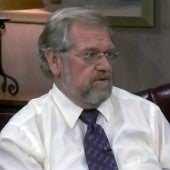
|
Faculty Lecturer, Director of the Betty and Jacob Friedman Holistic Garden | Agriculture, urban gardening, sustainable agriculture, organic farming, clean energy, renewable resources | Joe Novak is a Faculty Lecturer at Rice University and the Director of the Betty and Jacob Friedman Holistic Garden. As one of Texas's leading horticulture experts, Novak puts a strong emphasis on the environment and working with the natural ecosystem. The Holistic Garden has a songbird habitat, a pollinators' garden, and a wildflower meadow. It is organic, and making and using compost is a major function in it. No organic matter leaves the garden; it is all recycled through the techniques of composting and mulching. A recent grant from Green Mountain Energy Sun Club allowed the garden to begin the process of developing a model for off-grid urban farming by harvesting solar power and rainwater. The site is open to the public and is maintained by Rice students, faculty and staff, and community members. | Website |
| Odziemkowska | Kate | 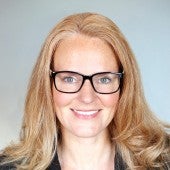
|
Assistant Professor of Strategic Management | Nonmarket strategy, strategic management, social movements, stakeholder governance | Kate Odziemkowska is an Assistant Professor of Strategic Management in the Jones Graduate School of Business at Rice University. Most of Dr. Odziemkowska's research centers on how environmental movements interact both contentiously (i.e., protests) and collaboratively with large companies, and the implications of that for companies' environmental performance, climate change innovation, and the movement itself: how and when strategically aligning with often-adversarial stakeholders, such as social activists, NGOs, and local communities can benefit firms. Her research has been published, or is forthcoming, in Organization Science and the Strategic Management Journal. Recent articles have focused on the risks and benefits to businesses that can emerge from activist-firm collaborations. At Rice's Jones School of Business, she teaches courses in strategic management, stakeholder management and networks. | Website |
| Ostherr | Kirsten | 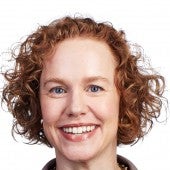
|
Gladys Louise Professor of English, English Department Chair, Director of Medical Humanities, Director of Medical Futures Lab, Adjunct Professor at the UT School of Public Health, Health & Behavioral Sciences Division | Visual culture and comparative media, medical humanities, science & cultural studies | Kirsten Ostherr, Ph.D., MPH is the Gladys Louise Fox Professor and Chair of the English department at Rice University, where she is a media scholar, health researcher, and technology analyst. She is currently leading a multidisciplinary project called "Translational Humanities for Public Health" that identifies humanities-based (and humanities-inspired) responses to the COVID-19 pandemic, to document and help others build upon these creative efforts. "Translational Humanities for Public Health" provides models of applied humanities responses to the intersecting crises of health, climate, and inequality and includes projects from all over the world. Kirsten is founder and director of the Medical Humanities program (2016-present) and the Medical Futures Lab (2012-present). The Medical Futures Lab is a collaborative center bringing together faculty from Rice, Baylor College of Medicine, and UT Health to investigate and reimagine medicine at the intersection of humanity and technology. Through the Medical Futures Lab, Dr. Ostherr team-teaches a series of "digital medical humanities" courses that train students to solve real-world healthcare problems through collaborative, participatory design practices. Dr. Ostherr has ongoing projects on seeing and sensing the environmental health exposome; trust and privacy in digital health and A.I.; simulation as a mediator between human and technological forms of medical expertise; and human centered design as a technique for patient collaboration in health technology development. | Website |
| Paige | Robin | 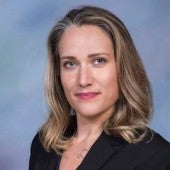
|
Adjunct Professor of Sociology, Director of the Center for Teaching Excellence | Food systems, environmental sociology, globalization, gender, Mexico, migration, agriculture | Robin Paige is an Associate Teaching Professor and Director of the Center for Teaching Excellence at Rice University and an Adjunct Professor of Sociology. Dr. Paige has conducted field research in New York State, California, and central Mexico on issues related to value-labels and alternative agriculture as well as migration between the US and Mexico. Dr. Paige's research on value-labels and voluntary certification in the agro-food system examines the processes by which actors are disciplined to the prevailing logic of capital and industrial relations through production and processing standards. In addition, for the last five years Dr. Paige has been conducting fieldwork in Mexico researching the daily lives of women who remain behind when their husbands migrate to the US. This project focuses on the social and emotional consequences for women in sending communities during long periods of family separation. Dr. Paige teaches courses on Gender, Sociology of Food, and Pedagogy. | Website |
| Park | John | 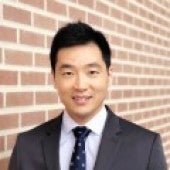
|
Website | |||
| Pasquali | Matteo | 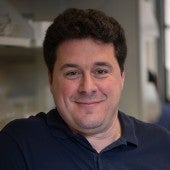
|
A.J. Hartsook Professor of Chemical and Biomolecular Engineering, Professor of Chemistry and Materials Science and Nanoengineering | Liquid micro- and nano-structures, carbon nanotubes | Matteo Pasquali serves as the Director of the Carbon Hub and the A. J. Hartsook Professor of Chemical & Biomolecular Engineering, Chemistry, and Materials Science & Nanoengineering at Rice University. His research group is studying the relationship between materials production and use, energy systems, and carbon dioxide emissions. Most engineered materials derive from ores that are oxidized and mined at low concentration; their production causes environmental degradation and carbon dioxide emissions due to the need to remove oxygen from the ore. Hydrocarbons are extracted at high concentration with lower environmental impact, yet they are almost solely used as fuels and burned to derive energy, causing large CO2 emissions. Pasquali's group is working on splitting hydrocarbons into solid carbon forms that can be used directly as engineered materials and hydrogen that can be used as a clean energy source. Pasquali's group has pioneered the understanding of liquid phases of carbon nanotubes and graphene, including their single-molecule behavior and their assembly into liquid crystals. His research has led to scalable processes for making all-carbon materials from such nanoscale building blocks and to the understanding of the relationships between process, structure, and properties in carbon nanotube fibers and macroscopic materials. | Website |
| Perkins | Heidi | 
|
Kinesiology Department Chair, Teaching Professor of Kinesiology | Health sciences, physical activity interventions, physical activity behavior in women and ethnic minority populations, community based health promotion | Website | |
| Phillips | Dereth | Faculty Lecturer of BioSciences, Inter-institutional Liaison for Undergraduate Research | Research biology, experiential learning, extracurricular opportunities | Dereth Phillips is a Faculty Lecturer in BioSciences at Rice University and the Inter-institutional Liaison for Undergraduate Research for the School of Natural Sciences. She has worked with faculty and students in the environmental space to advise in the development of experiential education opportunities, programs, and courses. | Website | |
| Pimpinelli | Alberto | 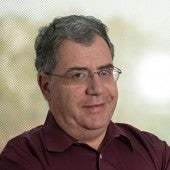
|
Associate Research Professor of Materials Science and NanoEngineering | Statistical physics, magnetism in insulating systems, crystal surfaces, crystal growth | Alberto Pimpinelli is the Associate Research Professor of Materials Science and Nanoengineering at Rice University and the Executive Director of the Smalley-Curl Institute. He is a tenured Professor of Physics at the Université d’Auvergne (Clermont-Ferrand, France) and a Visiting Professor at the Physics Department of the University of Maryland. In 2008-2012 he was the Attaché for Science & Technology at the Embassy of France in the US, in charge of nano- and materials sciences, with an emphasis on the environmental impact of nanotechnology. His research interests include statistical physics of crystal surfaces and growth, the morphology of plasmonic nanoparticles, as well as molecular transport in nanostructures with applications to nanomedicine. | Website |
| Pope | Albert | 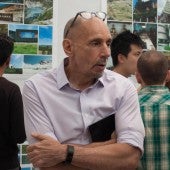
|
Gus Sessions Wortham Professor of Architecture | Architecture, urban environments, sustainable design and development, sustainable building materials, carbon neutral design, anthropocene, climate change | Albert Pope is the Gus Sessions Wortham Professor of Architecture. He teaches in the school's Undergraduate and Graduate Program and is currently the director of the Present/Future program, a design program and think tank in the School of Architecture. His work takes up the logic of contemporary urban form and its decisive role in shaping social and environmental contexts. Professor Pope has written and lectured extensively on the broad implications of post-war urban development. His current research addresses the urban implications of climate change, and he is actively working on the formulation of new models of density in light of the extraordinary demands soon to be placed on the global urban environment. He is currently engaged in research on carbon neutral urban development producing large scale planning projects for Houston and Detroit. | Website |
| Prendergast | Mary | 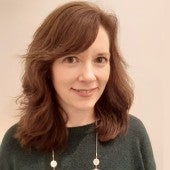
|
Associate Professor of Anthropology | archaeology; faunal remains; Pleistocene; Holocene; eastern Africa; pastoralism | Mary Prendergast is Associate Professor of Anthropology at Rice University. She is an archaeologist who asks questions about how human and animal worlds are intertwined. Her work primarily occurs in eastern Africa, where pastoralism (herding of cattle, goat, sheep, and donkey) has been central to many people’s lives for at least five millennia. Prendergast's research examines the earliest origins and spread of pastoralism in Kenya and Tanzania. Her team seeks to understand the challenges ancient herders faced in new environments – including climate and disease risks – and how their relationships with potentially long-resident hunters, gatherers, and fishers likely shaped economies, social worlds, and local ecologies. The team employs a range of scientific approaches to address these questions, including geoarchaeology, zooarchaeology, archaeobotany, and biomolecular archaeology. Through this approach, archaeology can help inform present-day debates in eastern Africa and elsewhere on land management, human-livestock-wildlife interactions, and ecological impacts of human and animal activities. | Website |
| Preston | Daniel | 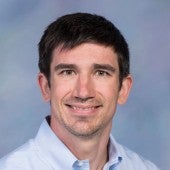
|
Assistant Professor of Mechanical Engineering | Energy renewability and sustainability, materials, fluids, fluid mechanics | Daniel J. Preston is an Assistant Professor of Mechanical Engineering at Rice University. The Preston Innovation Laboratory (PI Lab) conducts interdisciplinary research at the intersection of energy, materials, and fluids. In the face of growing concerns over depletion of nonrenewable resources and climate change, energy research is crucial. Dr. Preston approaches this topic from several directions, including enhanced efficiency for power generation and recovery of waste heat and work. The PI Lab also develops thermal management technologies to enable high-powered electronics, both for military and civilian applications. Furthermore, by introducing new, functional materials, the PI Lab aims to expand the realm of possibilities for engineered systems. Finally, the PI Lab adapts naturally occurring fluidic phenomena for man-made applications. Several examples of these biomimetic designs include superhydrophobic materials, based on the lotus leaf, and lubricant infused surfaces, inspired by the pitcher plant; both of these surfaces shed liquid droplets readily, enabling applications in fluid repellency and enhanced phase change heat transfer. | Website |
| Rhodes | Anna | 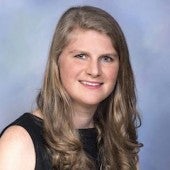
|
Education, urban environments, residency and neighborhoods, poverty and inequality, housing, disaster response and policy, disaster-driven displacement | Anna Rhodes is an Assistant Professor of Sociology at Rice University. Broadly her work examines how processes of residential decision-making are connected to social inequality. In one strand of work, Dr. Rhodes combines the sociology of education and urban sociology to investigate the dynamic relationship between residential and educational inequality. She examines the intersection of families’ school and residential choices, exploring the role of housing, neighborhood, and school contexts on children’s educational opportunities and outcomes. Her current projects examine how poor families sort into neighborhoods and schools across different metropolitan areas, and the social processes through which children are influenced by their residential and educational contexts. In a second strand of research, Dr. Rhodes draws together environmental sociology, disaster policy studies, and research on residential mobility to contribute to our understanding of how middle-class households make decisions in the aftermath of a disaster and how these choices may affect patterns of residential inequality. Her most recent book project examines the experiences of middle-class households who were displaced during Hurricane Harvey. Through longitudinal interviews and community observations this study examines how disasters may increase economic vulnerability and inequality among households in a middle-class community. | Website | |
| Roberto | Elizabeth | 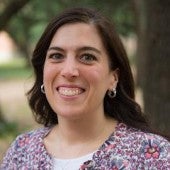
|
Assistant Professor of Sociology | Social and spatial inequality, residential segregation, computational social science, quantitative methods, the built environment | Website | |
| Rudolf | Volker | 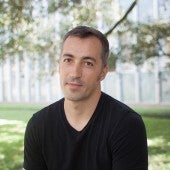
|
Professor of BioSciences | Community ecology, evolutionary biology, cannibalism, phenology, climate change, aquatic habitats, epidemic diseases | Volker Rudolf is a Professor of BioSciences at Rice University. His research combines theoretical and empirical work to reveal how variation at the individual, spatial, and temporal scale influences the ecological and evolutionary dynamics of natural communities and ecosystem processes. Most of his research is carried out in aquatic habitats using amphibians and invertebrates as model systems, but he works with a wide range of species and functional groups which allows him to integrate across different levels of organization (from individuals to ecosystems), time scales (from single-generation to evolutionary dynamics) and ecological interactions (from cannibalism to infectious diseases). Most of his current work examines how populations, communities, and ecosystems will respond to natural or anthropogenic mediated changes (including biodiversity loss & climate change). This includes projects on how changes in temperature and seasonality (mediated by climate change) will alter dynamics and structure of natural communities, and global distribution of some of the most destructive agricultural pests. Other ongoing projects examine ecological and evolutionary consequences of selfish behavior (with focus on cannibalism), the role of co-infections in driving epidemics and evolution of virulence of infectious diseases, and how species adapt to living in urban environments. Currently, Dr. Rudolf is mostly working in local pond ecosystems in Texas, but he has several ongoing collaborative projects in China, and his past research was conducted in the tropics in Ivory Coast, West Africa & in the Southern Appalachian. | Website |
| Sabharwal | Ashutosh | 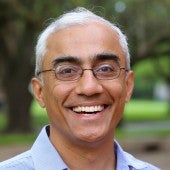
|
Website | |||
| Sachdeva | Kunal | Assistant Professor of Finance at the Jones School of Business | Finance, financial intermediation, environmental activism and investing | Kunal Sachdeva is an Assistant Professor of Finance in the Jones Graduate School of Business at Rice University. His research focuses on the financial intermediation between institutional investors and households. His recent research studies the real effects of climate-focused environmental activism. This research was awarded the Moskowitz Prize for the paper best representing outstanding research on sustainable and responsible investing and the financial implications of responsible business practices in capital markets. | Website | |
| Saltz | Julia | Assistant Professor of BioSciences | Evolution, development, genetics of behavior, social and nutrition environment, evolutionary ecology and psychology | Julia Saltz is an Associate Professor of BioSciences at Rice University. Her work aims to address fundamental questions in evolutionary and behavioral biology by studying genetic variation in the ways that individuals choose, shape and learn about their environments--especially their social and nutritional environments--and how these processes feed back to influence behavior and fitness. Why do individuals of the same species develop dramatic differences in behavior? How is this diversity maintained in the face of selection and drift? To address these questions, Dr. Saltz works to integrate evolutionary ecology and psychology with quantitative, population and functional genetics, using the fruit fly Drosophila melanogaster. | Website | |
| Saltz | Julia | 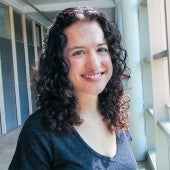
|
Website | |||
| Sano | Akane | 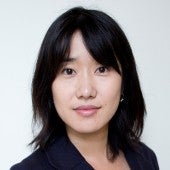
|
Website | |||
| Schaefer | Laura | 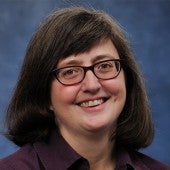
|
Chair in Engineering, Professor and Department Chair of Mechanical Engineering | Analysis, design, and optimization of energy systems with an emphasis on improving energy efficiency and diversification for increased sustainability, thermofluid modeling techniques | Laura Schaefer is the Burton J. and Ann M. McMurtry Chair in Engineering and a Professor of Mechanical Engineering at Rice University. Dr. Schaefer's research centers on the analysis, design and optimization of energy systems, with an emphasis on improving energy efficiency and diversification for increased sustainability. This area of research is rapidly becoming even more important, since our energy requirements are growing while our natural resources are being depleted. To that end, Dr. Schaefer's research approach has been to examine energy systems both from a fundamentals viewpoint and in a societal/environmental context. These systems include absorption cycles, fuel cells, two-phase microchannel flow, multijunction solar cells, hydrokinetics, and thermoacoustics. Although these topics may initially seem disparate, they are unified through the application of rigorous thermofluid modeling techniques (including the lattice Boltzmann method) both on the small scale and at the continuum level. | Website |
| Shamoo | Yousif | 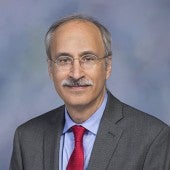
|
Vice Provost for Research, Ralph and Dorothy Looney Professor of BioSciences | Structural biology, molecular evolution, x-ray crystallography, microbial evolution, antibiotic resistance | Yousif Shamoo is the Vice Provost for Research at Rice University and the Ralph and Dorothy Looney Professor of BioSciences. As Vice Provost for Research, Dr. Shamoo oversees strategic planning for the university's research enterprise including engagement with industry through research and technology transfer. Shamoo's research lab studies the dangerous rise of multi-drug resistant and newly emerging pathogens. With multi-drug resistant bacteria becoming increasingly common in hospitals, antibiotic resistance has threatened to return us to a pre-antibiotic era that would completely undermine modern medicine. As our climate changes, we will see a rise in the number of newly emergent pathogen threats. The rise of new pathogen threats, whether viral like COVID-19 or HIV or bacterial like TB, are further exacerbated by encroachment of humans into new areas where pathogens have an opportunity to cross over into the human population. Once a jump is made into the human population, a pathogen can move rapidly across the globe. Many of the historical fire walls against the spread of disease, such as oceans, no longer slow the spread of pandemic threats. Dr. Shamoo's group studies the evolution and adaptation of bacterial pathogens. His group elucidates the underlying biophysical principles of adaptation within bacterial populations. They use a combination of experimental evolution and biophysical approaches including X-ray crystallography, enzyme kinetics, protein folding, calorimetry and genomics to link changes in protein structure and function to their resulting phenotypes within evolving populations. They then extend these physicochemical principles to predict the success or failure of specific adaptive alleles undergoing selection. By combining approaches from biophysics, genomics and experimental evolution, his group is able to identify and characterize successful evolutionary trajectories and then link those intermediates to the overall evolutionary trajectory of the bacterial populations. | Website |
| Siebach | Kirsten | 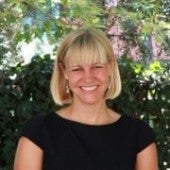
|
Assistant Professor of Earth, Environmental and Planetary Sciences | Mars, sedimentary petrology, diagenesis, sedimentology, remote sensing, planetary geology, geochemistry | Kirsten Siebach is an Assistant Professor in the Department of Earth, Environmental, and Planetary Sciences at Rice University and calls herself a Martian Geologist. She researches "source-to-sink" sedimentary processes on Mars and early Earth to interpret the history of water and surface environments early in our solar system. She is currently a member of the Science and Operations Teams for the Mars 2020 rover Perseverance and Mars Science Laboratory rover Curiosity, and previously worked on the science and engineering teams for the Phoenix Lander and the two Mars Exploration Rovers. She is also actively engaged in promoting education and outreach related to Earth and Planetary science and regularly presents at schools and outreach events. | Website |
| Siemann | Evan | 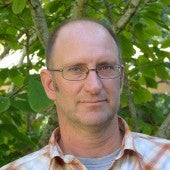
|
Harry C. and Olga K. Wiess Professor of BioSciences | Population ecology, community ecology, ecosystem ecology, chemical ecology, plant/herbivore interactions, plant/soil interactions, invasive species, biodiversity, conservation, restoration, algal biology, biofuels, wastewater remediation, biofertilizers, forests, grasslands, wetlands, streams, mountains | Website | |
| Silberg | Joff | 
|
Stewart Memorial Professor of BioSciences | Bioelectronics, environmental synthetic biology, redox synthetic biology, microbe-soil interface, elemental cycling in the oceans, microbe-electrode interface | Website | |
| Solomon | Scott | 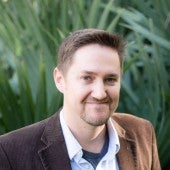
|
Associate Teaching Professor of BioSciences | Interactions between native and non-native ants, impacts of extreme flooding on ant communities, ant foraging behavior, the co-evolution between ants and microbes | Scott Solomon is an Associate Teaching Professor of BioSciences at Rice University. He teaches ecology, evolutionary biology, and scientific communication as an Associate Teaching Professor at Rice University in Houston. Dr. Solomon is also a Research Associate at the Smithsonian Institution's National Museum of Natural History. Dr. Solomon's current research examines the interactions between native and non-native ants, the impacts of extreme flooding on ant communities, ant foraging behavior, and the co-evolution between ants and microbes. | Website |
| Spector | Brian | 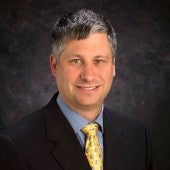
|
Adjunct Professor in the Practice | Energy, business, economics | Brian Spector is an Adjunct Professor in the Practice at Rice University. He previously served as Chief Development Officer of Sirius Solutions LLLP, where he was responsible for managing the firm’s businesses as well as overseeing their acquisitions and alliances. Mr. Spector was previously Managing Director of BP North America where he led their oil and gas origination business focused on upstream, midstream and complex options. Prior to BP, Mr. Spector was a Director at Enron where he worked in energy trading and finance. Mr. Spector teaches ENST 250, Understanding Energy, and COLL 217, Business Workshop for Humanities Students, as well as guest lectures in the Jones School of Business. | Website |
| Spiro | Lisa | 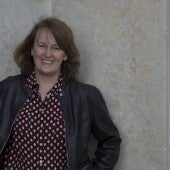
|
Executive Director of Digital Scholarship ServicesDigital resources, communications, data management, digital humanities | Digital scholarship, data management, library sustainability | Lisa Spiro serves as the Executive Director of Fondren Library's Digital Scholarship Services. She oversaw the development of Fondren's sustainability plan, leads Fondren's Green Team, and was part of a group that recently won a seed grant from the American Library Association to develop programming about climate justice. | Website |
| Stadler | Lauren | 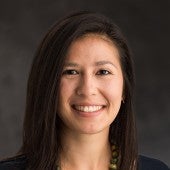
|
Assistant Professor of Civil and Environmental Engineering, Research Faculty at NEWT (Nanosystems Engineering Research Center for Nanotechnology-Enabled Water Treatment) | Water reuse and energy recovery from wastewater, environmental chemistry, microbial ecology, sustainability assessment | Website | |
| Stein | Bob | 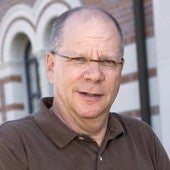
|
Lena Gohlman Fox Professor of Political Science | State and urban politics, public policy, voting behavior, severe weather and disasters, floods, disaster preparation and response, disaster warning systems | Robert Stein is the Lena Gohlman Fox Professor of Political Science at Rice University and the faculty director of Rice’s Center for Civic Engagement. Dr. Stein is an expert on urban politics, public policy, voting behavior, emergency preparedness, and severe weather mitigation. Since 2000, Dr. Stein has collaborated with an interdisciplinary group of researchers in computer science and civil engineering to study how individuals prepare for and respond to severe weather emergencies. This research has led to the design and implementation of warning systems to advise residents about their immediate risk from severe weather. He and his colleagues are currently collaborating with the City of Houston to install sensor devices to collect real-time data on neighborhood street flooding. Beyond emergency preparedness, contemporary focus areas of Dr. Stein’s current research include voting behavior and election administration. | Website |
| Strait | Rick | Adjunct Professor of Chemical and Biomolecular Engineering | Hydrogen Generation, Modular Fertilizer and Fuels plants, Biomass Conversion, Water Use and Reuse, Power and Industrial Integration | Rick Strait is an Adjunct Professor of Chemical and Biomolecular Engineering at Rice University, and the Former Director of Coal Monetization and CO2 Management. As an engineer, he has spent a professional lifetime (40 years) producing synthesis gas and turning it into useful products. As an adjunct professor at Rice (14 years) he has worked with the students and staff to develop leading edge new processes for the betterment of society and the earth. The Chemical Engineering Capstone Projects for the last two decades are representative of this leading edge design effort. With a deep understanding and experience of design, construction, maintenance and operations of ammonia, methanol, urea, carbon dioxide and other synthesis gas based chemicals, Rick combines industrial experience and new developments to create designs that are sustainable and environmentally friendly. | Website | |
| Tao | Jane | 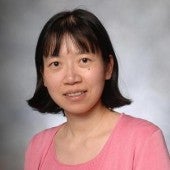
|
Professor of BioSciences | Structural biology, virology, influenza viruses, birnaviruses, RNA viruses | Yizhi Jane Tao is a Professor of Biosciences at Rice University. Her research focuses on the structure of RNA viruses and their infection mechanisms. Recently, her lab has been involved in collaborative efforts to develop novel technologies that allow selective adsorption and sensing of SARS-COV-2 in environment samples, including wastewater and air. | Website |
| Tittel | Frank | 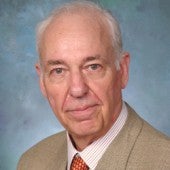
|
J.S. Abercrombie Professor Emeritus in Electrical and Computer Engineering | Quantum electronic devices, laser spectroscopy with applications in environmental monitoring and atmospheric chemistry, medical diagnostics, and the life sciences | Website | |
| Tomson | Mason | 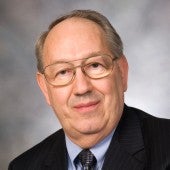
|
Professor of Civil and Environmental Engineering | Fate and transport of organic chemicals and heavy metals in sediments and ground water, environmental impact of nano-particles, inhibition of mineral scale formation, introduction to environmental chemistry, environmental organic chemistry, water chemistry | Website | |
| Torres | Mark | 
|
Assistant Professor of Earth, Environmental and Planetary Sciences | Mars, sedimentary petrology, diagenesis, sedimentology, remote sensing, planetary geology, geochemistry, biogeochemical cycling of carbon, Earth's habitability, cycling of water and oxygen | Mark Torres is an Assistant Professor of Earth, Environmental and Planetary Sciences at Rice University. The Torres Lab focuses on the biological, chemical, and geologic processes that act to distribute elements across our planet's surface and interior. The Torres lab is particularly interested in the set of elements and compounds that regulate Earth's habitability. For example, the Torres Lab is deeply focused on the cycling of water, carbon, and oxygen across a range of surface environments. The interaction between water and rock near Earth's surface drives a suite of dissolution/precipitation, acid/base, and reduction/oxidation reactions collectively called chemical weathering. These reactions are a major source of dissolved elements to natural waters and account for large transfers of carbon, oxygen, phosphorus, and sulfur between the rock reservoir and the ocean/atmosphere system. Linkages between chemical weathering processes and environmental conditions give rise to multiple feedbacks and forcings on the Earth system. Like weathering, the synthesis of organic matter and its subsequent transport, storage, and degradation is key to the biogeochemical cycling of C, O, P, and S. However, organic matter cycling obeys a completely different set of rules than weathering, adding a richer set of dynamics to major biogeochemical cycles. | Website |
| Vardi | Moshe | 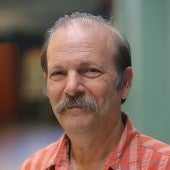
|
Karen Ostrum George Distinguished Service Professor in Computational Engineering and Computer Science | Automated reasoning, databases, computational complexity theory, design specification and verification | Moshe Y. Vardi is University Professor and the Karen Ostrum George Distinguished Service Professor in Computational Engineering at Rice University, where he is leading an Initiative on Technology, Culture, and Society. He is also a Faculty Scholar at the Baker Institute for Public Policy at Rice University. Vardi's research interests focus on automated reasoning, a branch of Artificial Intelligence with broad applications to computer science. In addition, he is studying adverse societal consequences of technology. | Website |
| Vassallo | Jesus | 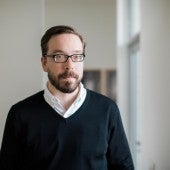
|
Associate Professor of Architecture | Urbanism, realism, affordable housing, new construction materials | Jesú Vassallo is a Spanish architect and writer, and currently an Associate Professor at Rice University. His interest in sustainability is channeled through his expertise in collective housing (new models of urban density), and construction materials (mass timber and other carbon neutral or carbon negative techniques). Vassallo is the author of Seamless (Park Books, 2016) and Epics in the Everyday (Park Book, 2019). He recently opened his own design practice in Houston, where he has focused on a series of projects that study the relationship between architectural form and urban space through a focus on housing. |
Website |
| Verduzco | Rafael | 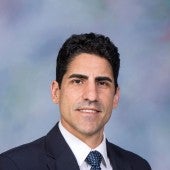
|
Professor of Chemical and Biomolecular Engineering, Materials Science and Nanoengineering | Polymers, organic solar cells, drug delivery, advanced polymer synthesis, power conversion efficiency | Rafael Verduzco is Professor of Chemical and Biomolecular Engineering and of Materials Science and Nanoengineering at Rice University. The Verduzco laboratory carries out research involving polymers, which are present in a wide variety of materials; these including commercial products as well as proteins and biological materials. Research in the Verduzco Laboratory focuses broadly on polymer science, with an emphasis on multi-scale characterization. Current areas of interest include understanding ion transport in polymers, bottlebrush polymers and coatings, conjugated polymers for bioelectronics, and covalent organic frameworks. An area of emphasis relevant to environmental applications is the development of polymeric and microbial sensors. These can be engineered to detect or respond to target pollutants, chemicals, or biomolecules in the environment. As an example, the Verduzco laboratory has developed organic electronic sensors capable of detecting SARS-CoV-2 in solution. | Website |
| Visweswaran | Kamala | Professor of Anthropology, TT and WF Chao Professor of Transnational South Asian Studies | Science and technology studies, feminist theory, ehnifc conflict, colonial and post-colonial law and literature, South Asia and Middle East studies, genomic governance, surveillance studies, public health | Kamala Visweswaran is a Professor of Anthropology and the T.T. and W.F. Chao Professor of Transnational South Asian Studies at Rice University. Kamala Visweswaran is a CWGS affiliate and member of the Medical Humanities Program at Rice. She writes and teaches in the fields algorithmic cultures, genomic governance, surveillance studies, science and technology studies, feminist theory and ethnography, transnational and diaspora studies, ethnic and conflict, human rights, colonial law, post/colonial law and literature, comparative South Asia and Middle East studies. Related work concerns the impact of oceanic studies and indigenous epistemologies for histories of science and climate. | Website | |
| Walker | Ted | Associate Director of Foundation Relations | Ted Walker is the Associate Director of Foundation Relations in Rice University's Office of Corporate and Foundation Relations. In this role, he works with faculty to develop ideas and proposals with the goal of acquiring funding from private foundations. He is available to discuss ideas, consider foundations that may be a good fit for your research, and advise on strategy toward achieving your funding goals and connecting with your audience. He is happy to meet with you to discuss your work any time! | |||
| Weaver | Alison | Executive Director of the Moody Center for the Arts | Art history, museum exhibitions | Alison Weaver is the founding Executive Director of the Moody Center for the Arts which is dedicated to cross-disciplinary collaboration between the arts, sciences and humanities. Several of the Moody’s projects to date have focused on environmental issues, from exhibitions by artists such as Michel Blazy, Natasha Bowdoin, and Justin Brice Guariglia to public events such as A Night of Philosophy and Ideas designed to foster dialogue around ecological issues and inspire positive change. | Web page | |
| Wilkins | Angela | Executive Director of the Ken Kennedy Institute | Computational sciences, data analysis, science and law | Web page | ||
| Wilson | Rick | 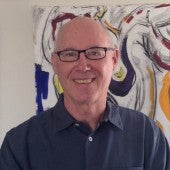
|
Herbert S. Autrey Professor of Political Science, Professor of Statistics and Psychology | Human strategic behavior, political history, design of political institutions | Rick K. Wilson is the Herbet S. Autrey Professor of Political Science and a Professor of Statistics and Psychology at Rice University. Dr. Wilson is interested in human behavior. In the past his work focused on political history and the design of political institutions -- especially the U.S. Congress in the pre-Federal and early-Federal period. His current work focuses on human cooperation and conflict. Of special interest are the evolutionary, biological, and neurological foundations of human behavior. He has designed experiments that explore the development of cooperation in numerous bargaining games. This research has a strong cross-disciplinary cast and is supported by grants from the National Science Foundation and is facilitated by the Rice University Behavioral Research Laboratory. | Website |
| Wong | Michael | 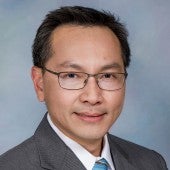
|
Chair of Chemical and Biomolecular Engineering, Tina and Sunit Patel Professor in Molecular Nanotechnology, Professor of Chemical and Biomolecular Engineering, Chemistry, Materials Science and Nanotechnology, and Civil and Environmental Engineering | Chemical engineering, materials chemistry's energy and environmental applications, clean water | Michael Wong is the Tina and Sunit Patel Professor in Molecular Nanotechnology and a Professor in Chemical and Biomolecular Engineering, Chemistry, Materials Science and Nanotechnology, and Civil and Environmental Engineering. Dr. Wong's research program broadly addresses chemical engineering problems using the tools of materials chemistry, with a particular interest in energy and environmental applications ("catalysis for clean water") and an emphasis on understanding synthesis-structure-property relationships in heterogeneous catalysis. Current research activities and interests are (i) structure-property analysis of palladium-on-gold catalysts; (ii) metal-on-metal nanoparticle synthesis; (iii) treatment of dioxane, nitrate, fluorocarbons, and chlorocarbons from water; (iv) sugar upgrading chemistry, and (v) nanoparticle assembly. He is research thrust leader on multifunctional nanomaterials in the NSF-funded NEWT (Nanotechnology Enabled Water Treatment) Engineering Research Center. | Website |
| Yeung | Laurence | 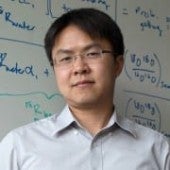
|
M. Ewing Career Development Associate Professor Earth System Science | Stable and clumped isotopes, atmospheric chemistry, biogeochemistry, nutrient cycling | Laurence Yeung is an Associate Professor of Earth, Environmental and Planetary Sciences at Rice University. He specializes in developing new tracers in Earth system cycles.These tracers bring fresh perspectives to chronically intractable systems such as atmospheric circulation, biosphere productivity, and nutrient cycling in a changing world. His research group's recent work has brought new insights on the history of air pollution over the twentieth century, as well as atmospheric temperatures during the last ice age. By continually challenging our Earth-system models with improved empirical constraints on natural processes, Dr. Yeung hopes we can improve predictions of how the Earth system will change in the future. | Website |
| Zodrow | George | 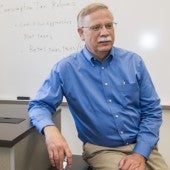
|
Allyn R. and Gladys M. Cline Chair of Economics | Tax reform in the US and developing countries, state and local public finance, computable general equilibrium modeling of the effects of tax reforms | George R. Zodrow is the Allyn R. and Gladys M. Cline Professor of Economics at Rice University and Chair of the Rice Economics Department. He is also a Rice faculty scholar at the Baker Institute and an international research fellow at the Centre for Business Taxation at Oxford University. His research interests are tax reform in the U.S. and developing countries, state and local public finance, and computable general equilibrium modeling of the effects of tax reforms. Some of his recent research (with John Diamond of the Baker Institute) has examined the macroeconomic and distributional effects of the implementation of various carbon tax reforms, focusing on the combined effects of carbon taxes and alternative methods of using their revenues. | Website |
| Zygourakis | Kyriacos | 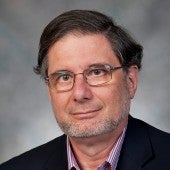
|
A.J. Hartsook Profesor of Chemical and Biomolecular Engineering, Professor of Bioengineering | Applied mathematics, computer simulations, digital video microscopy, thermal analysis, chemical reactor design - transport and reaction of nitrogen fertilizers in biochar-amended soils, hybrid multi-scale models describing the growth of heterogeneous cell populations, carbon sequestration and biochar production | Website |
